site search
online catalog
Relics
Showing 1 to 384 out of 384
CONFEDERATE GARDNER “BULLET IN WOOD” FROM CULP’S HILL
This is a small piece of a tree with a bullet fired into it. This small piece of wood has a Confederate Gardner type minie ball embedded in it; just the lower end is visible. This is an old knot of… (2025-262). Learn More »
$225.00
ON HOLD
RELIC, BRASS FLAG STAFF TIP (POINTY)
Offered here is a “dug” flag staff tip. This is made of brass, measures 5” long and 1” in diameter. Features a raised band and there is a single screw hole to attach to wood flag staff. Very… (236-213). Learn More »
$65.00
SOLD
RELIC, BRASS FLAG STAFF TIP (ROUND)
Offered here is a “dug” flag staff tip. This is made of brass, measures approximately 3.75” long and 1” in diameter. Features a raised band and there is a single screw hole to attach to wood… (236-214). Learn More »
$65.00
SOLD
HALLTOWN / LOUDON HEIGHTS / MARYLAND HEIGHTS RELIC GROUP FOUND BY BILL GAVIN
These relics are from historically significant sites surrounding Harpers Ferry. Maryland and Loudon Heights overlook the town and were covered with artillery redoubts and camps throughout the Civil… (601-739). Learn More »
$125.00
SOLD
APPOMATTOX STATION RELIC GROUPING #5 – LAST CAVALRY FIGHT OF THE EASTERN THEATER
On the day preceding the surrender at Appomattox, the last cavalry engagement of the Eastern Theater took place at Appomattox Station. Identifying an opportunity to neutralize and capture an entire… (173-4354). Learn More »
$125.00
SOLD
APPOMATTOX STATION RELIC GROUPING #2 – LAST CAVALRY FIGHT OF THE EASTERN THEATER
On the day preceding the surrender at Appomattox, the last cavalry engagement of the Eastern Theater took place at Appomattox Station. Identifying an opportunity to neutralize and capture an entire… (173-4320). Learn More »
CONFEDERATE LAUREL WREATH KEEPER FROM TWO-PIECE INTERLOCKING CS BELT PLATE
This is a good example of the wreath portion of the quintessential Confederate sword belt plate. This is an excavated example showing a pleasing olive-green patina mixed with some light brown in… (915-21). Learn More »
$395.00
SOLD
EXCELLENT CONDITION TENNESSEE RECOVERED CONFEDERATE WISHBONE FRAME BUCKLE
One of the most distinctive Confederate belt buckles is the forked-tongue or wishbone frame style, so named from the shape of the movable tongue mounted on the center bar. The buckle is simple,… (1285-02). Learn More »
$750.00
SOLD
CIVIL WAR PERIOD GLASS INKWELL FROM 17TH MASS. CAMP
Typical eight-sided, pyramid shaped inkwell with an extended round neck. This is typical style for Civil War use. This example is in very nice shape with no chips or cracks and a nice pontil on the… (1268-239). Learn More »
$75.00
SOLD
RARE CONFEDERATE BOYLE, GAMBLE AND MCFEE BAYONET ADAPTER
Bayonet adapters enabled rifles such as the Model 1817 and Model 1841, as well as Southern-made military rifles, to be mounted with bayonets without weakening barrels by dovetailing in studs to engage… (1000-2331). Learn More »
RELIC GROUPING – CONFEDERATE SURRENDER AT APPOMATTOX
At Appomattox, once news of the surrender circulated, Confederates dismantled and destroyed as much equipment as possible to prevent confiscation by US Forces. Dug from the last documented camp site… (173-4331). Learn More »
$175.00
ON HOLD
RARE CONFEDERATE BOYLE, GAMBLE AND MCFEE BAYONET ADAPTER
Bayonet adapters enabled rifles such as the Model 1817 and Model 1841, as well as Southern-made military rifles, to be mounted with bayonets without weakening barrels by dovetailing in studs to engage… (1000-2318). Learn More »
VERY RARE, CIVIL WAR MARYLAND SWORD BELT PLATE IN EXCELLENT, NON-DUG CONDITION
Presented here is a rare, early brass rectangular belt plate worn by Maryland volunteers during the Civil War. Prior to the war, many of the state’s volunteer militia units contracted with the… (2025-240). Learn More »
$4,250.00
ON HOLD
PIECE OF AN INDIAN WAR M1872 FATIGUE BLOUSE FROM FORT PEMBINA, ND
This is a portion of a rare Model 1872 fatigue blouse clearly showing the characteristic pleats of the pattern. These were replacements for the old Civil War M1858 fatigue blouse (the 4-button sack… (1052-579). Learn More »
PIECE OF AN INDIAN WAR M1872 FATIGUE BLOUSE FROM FORT PEMBINA, ND
This is a portion of the rare Model 1872 fatigue blouse. The pattern was a replacement for the old Civil War M1858 fatigue blouse (the 4-button sack coat,) made with the idea of giving the soldier… (1052-578). Learn More »
KEPI OR DRESS CAP STIFFENER FROM FORT PEMBINA
This comes from the excavations at Fort Pembina, ND, a small frontier army post in operation from 1870 to 1895, and is the stiffener from inside the top of a kepi a M1872 dress cap. It is black in… (1052-1152). Learn More »
KEPI OR DRESS CAP STIFFENER FROM FORT PEMBINA
This comes from the excavations at Fort Pembina, ND, a small frontier army post in operation from 1870 to 1895, and is the stiffener from inside the top of a kepi a M1872 dress cap. It is black in… (1052-475). Learn More »
DROPPED US .58 CALIBER PRESSED & TURNED “MINIE” BALLS – 1ST DAY’S BATTLEFIELD, GETTYSBURG; KEN BREAM COLLECTION
These are .58 caliber, three-groove, pressed & turned “minie” balls. This is the regulation bullet for the Springfield rifle musket and typical of that used by both sides during the Civil… (1163-92A). Learn More »
US PATTERN 1826 EAGLE BREAST PLATE DUG BY SID KERKSIS AT CEDAR MOUNTAIN
This Federal eagle breast plate is of the regulation 1826 pattern and was recovered from Cedar Mountain, Virginia in October 1957. Plate measures 64mm in diameter and is in very good excavated… (2025-185). Learn More »
$475.00
ON HOLD
US PATTERN 1839 U.S. CARTRIDGE BOX PLATE DUG BY SID KERKSIS AT BRANDY STATION
This Federal cartridge box plate is of the regulation 1839 pattern and was recovered from a very significant location at Spotsylvania, Virginia in April 1954. Plate is in very fine excavated… (2025-182). Learn More »
$475.00
ON HOLD
US PATTERN 1939 U.S. CARTRIDGE BOX PLATE DUG BY SID KERKSIS AT BRANDY STATION
This Federal cartridge box plate is of the regulation 1839 pattern and was recovered from a 6th Corps camp at Brandy Station, Virginia in February 1959. Plate is in very fine excavated condition.… (2025-192). Learn More »
$450.00
ON HOLD
FEDERAL MODEL 1860 LIGHT CAVALRY SABER FOUND ON EAST CAVALRY FIELD, GETTYSBURG – GEISELMAN COLLECTION
This Civil War artifact is Federal Model 1860 light cavalry saber that was recovered in the battle area at East Cavalry Field in Gettysburg. Once part of the Norbert Oyler Collection, this edged… (942-14). Learn More »
$6,500.00
Originally $7,500.00
ON HOLD
C.S. 4.52” 12-POUND SPHERICAL CASE-SHOT, LEAD SIDE-LOADER SHELL RECOVERED AT THE CODORI FARM, GETTYSBURG – GEISELMAN COLLECTION
Local resident Norbert Ollier found this original, Confederate, 12-pound, spherical caseshot, lead side-loader shell in the fields of the Codori Farm on the Gettysburg battlefield sometime after the… (2025-251). Learn More »
$2,295.00
ON HOLD
BOOK – CIVIL WAR RELICS OF THE WESTERN CAMPAIGNS 1861-1865
By Charlie Harris, cloth boards with gold foil imprint of cover and spine, dustjacket, 8.5” x 11”, 261 pages, index. Excellent condition. Pages of Civil War relics discovered in the Western… (1266-1034). Learn More »
CONFEDERATE 6LB SPHERICAL SHOT – TRIANGULAR FIELD/DEVIL’S DEN AREA
This dug Confederate 3.67” spherical shot was recovered long ago on private property near the area just below Devil’s Den - in the vicinity of the “Triangular Field”. Its condition is… (2025-196). Learn More »
$895.00
ON HOLD
ANDREW GREGG TUCKER POST 52 G.A.R. PLINTH, LEWISBURG, PA, HONORING THE 142nd PA OFFICER KILLED AT GETTSYBURG, WITH A BATTLEFIELD PICKUP BAYONET
This “Black Granite” plinth is painted in gold with the name of the G.A.R. post in which it was used, along with the donor’s name, and the date and location where that post’s officer … (2024-1366). Learn More »
CIVIL WAR CARBINE BULLET DISPLAY
Offered here is a fine sampling of carbine bullets, with a couple of complete cartridges, used by the cavalry during the Civil War; displayed nicely in a matted riker case. All bullets labeled with… (2025-164). Learn More »
GETTYSBURG MICHIGAN CAVALRY BRIGADE SPENCER RIFLE: SECOND DELIVERY “COPELAND” SPENCER, SERIAL #1811 WITH CONFEDERATE “Q” CLEANED AND REPAIRED STAMP
M1860 Spencer Army Rifles are highly sought after and one falling in the serial number range for issue in Custer’s Michigan Cavalry Brigade before Gettysburg is a holy grail for many. This one has… (172-6073). Learn More »
JOHN GOODE GETTYSURG DESK SET
The set consists of a rectangular block of wood sawn on the battlefield and mounted with square, cut glass inkwell at center with a wood top, which is surrounded in turn by relics from the… (2024-1278). Learn More »
PIECE OF A U.S. FLAG FROM THE FRONTIER US ARMY FORT PEMBINA, NORTH DAKOTA
This piece of bunting comes from excavations at Fort Pembina, ND, conducted on private property with the owner’s permission, a fort established in 1870 by troops of the 20th US Infantry and… (1052-722). Learn More »
PIECE OF CIVIL WAR - INDIAN WAR FRONTIER US ARMY BLANKET FROM FORT PEMBINA, NORTH DAKOTA
This piece of a US Army military issue blanket comes from excavations at Fort Pembina, ND, conducted on private property with the owner’s permission, a fort established in 1870 by troops of the 20th… (1052-615). Learn More »
US ARMY SHIRT CUFF FROM FORT PEMBINA, NORTH DAKOTA
A relic from a small U.S. Army frontier post of the Indian Wars- part of a soldier’s shirt. This is the shirt cuff, still showing a small button near the corner, and a portion of the lower sleeve.… (1052-602). Learn More »
REMNANT OF SCARCE INDIAN WAR SOLDIER’S MITTEN FROM FORT PEMBINA, ND
This comes from the excavations at Fort Pembina, occupied 1870-1895, where cold weather in winter months might well be a concern. The army began issuing mittens in 1873. Before that men were left to… (1052-584). Learn More »
SLICE OF CONFEDERATE FLAG POLE FROM RICHMOND
Here is a 3/8” thick slice of wood that measures 4 ¼” in diameter. Glued to one side is the remains of an old, printed label: “Richmond, Va., May 20, 1890. I, C.L. Parker, hereby cer[tify] that… (1030-324). Learn More »
$625.00
Originally $780.00
SMALL OILER FOR P1853 ENFIELD RIFLES, FROM CHANCELLORSVILLE
Face has a nice even dark patina with a good strong “US” stamping. Face is free from any major dings or dents but does have scattered light brown spotting from ground action. Reverse has 99% of… (236-1048). Learn More »
$85.00
SOLD
KEPI CHINSTRAP AND SIDE BUTTONS FROM AN INDIAN WAR FRONTIER
This is a complete leather chinstrap from an army kepi or forage cap from excavations at Fort Pembina, ND. The chinstrap is a two-piece style with a fixed loop on the end of one strap and a fixed… (1052-486). Learn More »
CIVIL WAR-INDIAN WAR UNIFORM COAT PIECE WITH BUTTON FROM FORT PEMBINA
This is part of the right lapel of a US army coat discarded by a soldier at Fort Pembina, ND, sometime between 1870 and 1895, and is from excavations in wet, anaerobic soil that has preserved leather… (1052-724). Learn More »
PIECE OF US ARMY BLANKET FROM FORT PEMBINA, NORTH DAKOTA
This piece of a US Army military issue blanket comes from excavations at Fort Pembina, ND, conducted on private property with the owner’s permission, a fort established in 1870 by troops of the 20th… (1052-616). Learn More »
APPOMATTOX STATION RELIC GROUPING – LAST CAVALRY FIGHT OF THE EASTERN THEATER
On the day preceding the surrender at Appomattox, the last cavalry engagement of the Eastern Theater took place at Appomattox Station. Identifying an opportunity to neutralize and capture an entire… (173-4339). Learn More »
$125.00
ON HOLD
“EXCAVATED ARTIFACTS” BY STANLEY PHILLIPS
Full title of this hardcover volume is “EXCAVATED ARTIFACTS FROM BATTLEFIELDS AND CAMPSITES OF THE CIVIL WAR 1861-1865” by Stanley S. Phillips. Volume measures 8.5” x 11” and runs 220 pages… (1266-1053). Learn More »
EXCAVATED MODEL 1855 SOCKET BAYONET MADE INTO POT HOOK
This is a M-1855 socket bayonet in very good, “dug” condition. Bayonet has been cleaned and coated and the iron is in very stable condition. The tip has been broken off and the next 2 ½”… (1000-1380). Learn More »
$360.00
Originally $450.00
RARE CONFEDERATE “THREE SQUARE” SOCKET BAYONET MADE INTO POT HOOK
This is an excavated example of a Confederate-made musket socket bayonet. Measuring approximately 21” overall with a 2 ¾” socket. This was made for an early .69 caliber musket with a bayonet… (1000-1374). Learn More »
$715.00
Originally $895.00
BOOK – CIVIL WAR ARTIFACTS, A GUIDE FOR THE HISTORIAN BY CROUCH
A classic “relic book” by Howard R. Crouch. Printed hardcover, 8.5” x 11”, 238 pages. Very good condition from the library of William Turner. The pages are filled with photographs of great… (1266-1086). Learn More »
RARE CONFEDERATE “THREE SQUARE” SOCKET BAYONET FROM DREWRY’S BLUFF
This is an excavated example of a Confederate-made musket socket bayonet. Measuring 21” overall with a 2 5/8” socket. This was made for an early .69 caliber musket with a bayonet lug mounted… (1000-1372). Learn More »
$635.00
Originally $795.00
EXCAVATED CIVIL WAR “VMM” OVAL WAIST BELT PLATE
Presented here is an excavated “Volunteer Militia of Maine” oval waist belt plate that was issued to the State’s volunteer infantrymen early in the Civil War. Maine formally organized its… (1000-1541). Learn More »
$1,480.00
Originally $1,850.00
RELIC GROUPING – CONFEDERATE SURRENDER AT APPOMATTOX
At Appomattox, once news of the surrender circulated, Confederates dismantled and destroyed as much equipment as possible to prevent confiscation by US Forces. Dug from the last documented camp site… (173-4319). Learn More »
US/CS 12-POUND SMOOTHBORE CANISTER PLATE WITH 7 CANISTER SHOT RECOVERED AT GETTYSBURG – ZIEGLER COLLECTION / GEISELMAN COLLECTION
This specimen of Civil War ammunition consists of the remnants of a 12-pounder smoothbore stand of canister gathered from the Gettysburg battlefield. Originally from the Ziegler Collection, this early… (2025-100). Learn More »
$695.00
ON HOLD
DUG CIVIL WAR ID DISK FOR 12TH PENNSYLVANIA RESERVES (41st PENNSYLVANIA) SOLDIER
Front of the tag has a bust of General McClellan surrounded by “MAJOR GENERAL GEO. B. MCCLELLAN / WAR OF 1861.” Face is dark with gilt remaining in the low areas. Reverse is stamped “DANIEL… (1000-1836). Learn More »
$1,800.00
Originally $2,250.00
BOOK – CIVIL WAR RELICS FROM SOUTH CAROLINA
Limited Edition, Numbered and Signed. Hardcover by Celeste and David Topper. Black covers with title on front cover and spine, 8.5” x 11”, 201 pages, inscribed to William Turner. Number 123 of… (1266-1058). Learn More »
DROPPED US .58 CALIBER “MINIE” BALLS – 3RD CORPS HOSPITAL SITE, GETTYSBURG – KEN BREAM COLLECTION
These are .58 caliber, three-groove, “minie” balls. This is the regulation bullet for the Springfield rifle musket and typical of that used by both sides during the Civil War. The bullets feature… (1163-76). Learn More »
GEORGIA CARTRIDGE BOX PLATE FROM SPOTTSYLVANIA COUNTY WITH CARVED DESIGNS ON THE REVERSE
A scarce Georgia state seal cartridge box plate with a pleasing patina found November 25, 1975, in Spotsylvania County. These followed the US 1839 pattern that was both ornamental and served to keep… (1262-03). Learn More »
$4,750.00
ON HOLD
CONFEDERATE LARGE FRAME FORKED-TONGUE, “WISHBONE” BUCKLE FROM PEACHTREE CREEK, ATLANTA CAMPAIGN, EX DON PHILLIPS
One of the more distinctive Confederate belt buckles is the frame pattern with a movable spit tongue sometimes called the “forked tongue” or “wishbone” pattern. The buckle is simple,… (2024-2377). Learn More »
$895.00
ON HOLD
PIECE OF AN INDIAN WAR M1872 FATIGUE BLOUSE OR DRESS COAT FROM FORT PEMBINA, ND
This is a piece from the lapel of a US Army jacket showing part of the blue outer fabric, the lining and the remains of five corroded brass buttons. From the size and spacing of the buttons this is… (1052-608). Learn More »
PIECE OF CIVIL WAR ARMY BLANKET FROM FORT PEMBINA, NORTH DAKOTA
The army had vast stocks of Civil War material left over at the end of the war. These supplies, along with the reduction of the postwar army meant U.S. troops were getting Civil War gear well into the… (1052-617). Learn More »
SCARCE INDIAN WAR SOLDIER’S MITTEN FROM FORT PEMBINA, ND
This comes from the excavations at Fort Pembina, occupied 1870-1895, where cold weather in winter months might well be a concern. The army began issuing mittens in 1873. Before that men were left to… (1052-620). Learn More »
INDIAN WAR SOLDIER’S MITTEN FROM FORT PEMBINA, ND
This comes from the excavations at Fort Pembina, occupied 1870-1895, where cold weather in winter months might well be a concern. The army began issuing mittens in 1873. Before that men were left to… (1052-619). Learn More »
FLY FROM INDIAN WAR SOLDIER’S TROUSERS, FORT PEMBINA, ND
This comes from the excavations at Fort Pembina, occupied 1870-1895, where the wet, anaerobic soil conditions of the dig (conducted on private property with the owner’s permission,) have yielded… (1052-599). Learn More »
$65.00
ON HOLD
RARE EXPERIMENTAL 10-POUNDER PARROTT SHELL
While the Parrott elongated shell was the standard ammunition for the 3-inch rifled cannons during the Civil War. This specimen is believed to be a very rare early or experimental variation. This… (490-7004). Learn More »
SPRINGFIELD 1838 DATED M1816 PERCUSSION CONVERSION MUSKET FROM THE YORK SPRINGS, PA., G.A.R. POST, WITH MILITARY RACK MARKINGS
A good example of a classic early Civil War musket: a Model 1816 converted from flintlock to percussion in the early 1850s to bring it up to par with the new, percussion M1842 muskets. These are .69… (1202-429). Learn More »
CARVED CARTRIDGE BOX BELT PLATE OF WILLIAM CHURCH, CO. K 13th VERMONT, KILLED IN ACTION AT GETTYSBURG IN THE REPULSE OF PICKETT’S CHARGE, WITH BATTLE DAMAGE
“After the battle was won, and the victory was ours, and we were returning to a position in the front line, a hostile shell hit him and burst causing almost instant death. Among all the bodies… (2025-41). Learn More »
$4,250.00
ON HOLD
PIECE OF INDIAN MADE ROPE FROM PLANT MATERIAL FROM FORT PEMBINA, NORTH DAKOTA
This is a short section of rope made from twisted and woven plant fibers and comes from excavations at Fort Pembina, ND, conducted on private property with the owner’s permission, a fort established… (1052-720). Learn More »
CIVIL WAR-INDIAN WAR UNIFORM LAPEL FROM FORT PEMBINA
This strip of cloth showing three buttonholes (and what seems to be part of a fourth) is the remnant of an army dress coat discarded after its useful days were done at Fort Pembina, a small frontier… (1052-610). Learn More »
MARYLAND STATE SEAL BUTTON FROM CULP’S HILL
Formerly in the Ron Miller collection, this is a very strong Maryland state seal button recovered on Culp’s Hill. It’s hard to think of a button more emblematic of the struggle of brother against… (286-1400). Learn More »
$395.00
ON HOLD
INDIAN WAR SOLDIER’S MITTEN PIECE FROM FORT PEMBINA, ND
This comes from the excavations at Fort Pembina, occupied 1870-1895, where cold weather in winter months might well be a concern. The army began issuing mittens in 1873. Before that men were left to… (1052-621). Learn More »
CIVIL WAR-INDIAN WAR FORAGE CAP VISOR
This is a well preserved leather visor from a forage cap recovered at Fort Pembina, ND, where it was preserved in remarkable condition by wet, anaerobic soil conditions. This is typical of the simple… (1052-485). Learn More »
CIVIL WAR-INDIAN WAR FORAGE CAP VISOR
This is a well preserved leather visor from a forage cap recovered at Fort Pembina, ND, where it was preserved in remarkable condition by wet, anaerobic soil conditions. This is typical of the simple… (1052-482). Learn More »
CIVIL WAR-INDIAN WAR FORAGE CAP VISOR
This is a well preserved leather visor from a forage cap recovered at Fort Pembina, ND, where it was preserved in remarkable condition by wet, anaerobic soil conditions. This is typical of the simple… (1052-481). Learn More »
$45.00
ON HOLD
GETTYBURG RECOVERED CARTRIDGE BOX PLATE
This regulation US cartridge box plate was recovered at Gettysburg and as typical of many battlefield pick-ups was once mounted for display on a relic board, as shown by small holes at top, bottom and… (286-1398). Learn More »
RELIC US CIVIL WAR CANTEEN: FROM YORK SPRINGS, PA, GAR POST #9
This regulation, smooth-sided canteen came from the York Springs G.A.R. post, is pretty clearly an early battlefield pick-up, and may well have a Gettysburg origin. It is untagged, however, with the… (2023-2674). Learn More »
U.S. 3” SCHENKL PERCUSSION SHELL – EAST CAVALRY FIELD, GETTYSBURG - GEISELMAN COLLECTION
This Federal, intact 3” Schenkl percussion shell specimen is a wonderful artillery relic recovered from East Cavalry Field sometime after the Battle of Gettysburg. The percussion shell measures 9”… (2024-2389). Learn More »
ENGLISH .69 CALIBER "TOWER" BULLET
This English pattern of bullet have no grooves because they were to loaded with the lubricated cartridge wrapper. This bullet has a deep plug cavity, was machine pressed, and has a very thick skirt.… (2024-251). Learn More »
U.S. 3” SCHENKL PERCUSSION SHELL FRAGMENT RECOVERED AT HUNTERSTOWN NEAR GETTYSBURG - GEISELMAN COLLECTION
Here is a large, very fine example of shell fragment from a fired, 3” Schenkl percussion projectile that was recovered from the battle of Hunterstown near Gettysburg. Once part of the Detrick… (1179-1293). Learn More »
CINCINNATI DEPOT SMOOTHSIDE CANTEEN - PITZER COLLECTION OF GETTYSBURG HACKING AND BOARDING HOUSE ; GEISELMAN COLLECTION
This Model 1858 smoothside canteen has a nice patina over the entire body. All three sling keepers are present and the spout is made of pewter. The spout is unusual in that it seems to be a little… (1179-1292). Learn More »
VERY RARE CONFEDERATE “ROPE BORDER” BELT PLATE
Dug condition stamped brass oval “rope border” belt plate. Unlike their US counterparts, these were not lead filled. These are not commonly found and can most often be traced back to the… (1202-260). Learn More »
$3,100.00
ON HOLD
RELIC -- US NAVAL WATERCAP FUSE WITH BUSHING, DATED 1864
Excavated naval watercap fuse dated 1864 and in good condition. This fuse is made of brass with flange on top, with threaded portion and tapered body. A brass bushing is on this fuse to fit into… (2024-2327). Learn More »
VERY RARE DUG CSA RECTANGULAR PLATE
This is wonderful example of a dug rectangular Confederate belt plate, that appears to be classified by collectors as Mullinax #109, based upon the listing in his book Confederate Belt Buckles and… (1202-259). Learn More »
$2,950.00
ON HOLD
SKIN OF AN SNY BELT PLATE DUG AT HARRISON’S LANDING
This is the skin only of a State of New York belt plate emblazoned with the initials “SNY.” The plate has a nice dark face with some lighter discoloration from ground action. The edge of the plate… (410-853). Learn More »
EXCAVATED CONFEDERATE CAVALRY SABER
If they gave out awards for crudely made cavalry sabers, this one would be in the running. The guard is simple flat iron, curving in a broad semicircle, with a simple hole in one end through which the… (490-6746). Learn More »
LARGE FRAMED RELIC SHOWBOARD
This relic board is very like those assembled from Gettysburg relics by John Rosensteel and displayed on the porch of the Round Top Museum, but differs in displaying the relics on horizontal rather… (1242-06). Learn More »
$3,200.00
Originally $3,500.00
ROUND EAGLE CARTRIDGE BOX SHOULDER BELT PLATE FROM 18th CORPS LINES, COLD HARBOR, EX-KERKSIS
This regulation belt plate for the cartridge box sling was in the collection of Syd Kerksis, well-known and respected early collector and author. It comes with his annotated envelope indicating he… (766-2044). Learn More »
$395.00
ON HOLD
ROUND EAGLE CARTRIDGE BOX SHOULDER BELT PLATE FROM 1st DIVISION 2nd CORPS LINES, COLD HARBOR, EX-KERKSIS
This regulation belt plate for the cartridge box sling was in the collection of Syd Kerksis, well-known and respected early collector and author. It comes with his annotated envelope indicating he… (766-2048). Learn More »
DROPPED .58 CALIBER “MINIE” BALLS – SEMINARY RIDGE, GETTYSBURG – KEN BREAM COLLECTION
These are .58 caliber, three-groove, “minie” balls. This is the regulation bullet for the Springfield rifle musket and typical of that used by both sides during the Civil War. The bullets feature… (1163-132A). Learn More »
DROPPED US .52 SHARPS CARBINE BULLETS RECOVERED AT 3RD CORPS POSITION, GETTYSBURG – KEN BREAM COLLECTION
These bullets were found by local Gettysburg resident and relic hunter Ken Bream. Mr. Bream was born and raised in Gettysburg and grew up in a house right next to the famous Peach Orchard. He… (1163-90). Learn More »
WOODWARD GETTYSBURG LAMP USING A CONFEDERATE 12-POUND SIDE-LOADING SPHERICAL CASE SHOT
Local gunsmith Edward Woodward turned his talents to the relic business not long after the battle, selling relics picked up here to veterans and visitors as early as 1865, and is particularly known… (490-6965). Learn More »
EXCAVATED U.S. 3” PARROTT SHELL FROM GETTYSBURG GAR POST #9
Here is a Gettysburg excavated Civil War Federal 3” field artillery projectile often referred to as a Parrott Type III shell excavated from an unknown location area on the Gettysburg battlefield… (2024-2135). Learn More »
CONFEDERATE ATLANTA STYLE CSA RECTANGULAR BELT PLATE: FOUND AT RESACA
This is a very good example of the quintessential Confederate belt plate, the rectangular CSA. This one has sharp lettering and border, and retains all three hooks on the reverse, bent down slightly… (2024-1693). Learn More »
$3,250.00
SOLD
SPEARHEAD FROM A BROKEN LANCE
This is the spearhead section only from a broken lance. The piece meas. approx. 38.50 inches long overall. The iron point of the spearhead itself is double edged with a raised ridge on each side… (490-3235). Learn More »
RELIC US PATTERN 1839 BELT PLATE
This Federal belt plate is of the regulation 1839 pattern. Constructed in the die-struck and rolled brass method, the brass accoutrement’s face shows a very clear “US”. Face has an even brown… (1256-102). Learn More »
RELIC, HAND-MADE UNION 8TH ARMY CORPS BADGE
Six-pointed star carved from a flat piece of white metal, likely pewter. In fine, “dug” condition with light oxidation on points and edges. Measures approximately 1.25” across points. Unknown… (490-6757). Learn More »
RELIC VIRGINIA COAT BUTTON
This “dug” button has a beautiful face. The state seal in center surrounded by motto. The right amount of gilt remains to highlight all details on the button face. A smooth brown patina under the… (1235-17). Learn More »
$275.00
SOLD
ATTIC FLOOR BOARD SECTION FROM BEFORE THE CUPOLA STEPS AT THE LUTHERAN THEOLOGICAL SEMINARY AT GETTYSBURG
This is a section of floorboard used in the original 1830s construction of the main building of the Lutheran Theological Seminary, famous for the use of its cupola during the battle as a lookout point… (2023-20). Learn More »
$595.00
SOLD
TWO PIECE GETTYSBURG SOUVENIR BATTLEFIELD WOOD CANE
Two piece Gettysburg souvenir battlefield wood cane. The top knob is stamped “Wheatfield Gettysburg”. Just below this marking the darker wood shaft is stamped “Devil’s Den”. The cane… (635-594). Learn More »
EXCAVATED CIVIL WAR US MODEL 1840 MUSICIAN’S SWORD
This pattern of sword for wear by musicians was part of the 1840 series of arms that included new patterns of cavalry saber, officer’s sword, non-commissioned officer’s sword, etc. This is similar… (490-6745). Learn More »
RAIL SECTION FROM THE MANASSAS GAP BRANCH, ORANGE & ALEXANDRIA RAILROAD
This is a nicely labeled section of rail stamped in small letters: “Section of U. rail used on the Manassas Gap branch Orange & Alexandria R.R. during the war 1861-65” and signed on the top… (1202-186). Learn More »
NORTH CAROLINA SUNBURST COAT BUTTON
Button features "NC" surrounded by a sunburst, made for North Carolina troops. One-piece stamped brass coat button. Measures 22mm. No back mark. Shank missing. This pattern features seven rays. "NC"… (2024-700). Learn More »
U.S. / C.S. 12-POUNDER SOLID SHOT – FROM G.A.R. “SKELLY” POST #9, GETTYSBURG
This is the most common solid shot projectile of any caliber used during the Civil War by both the Federal and Confederate forces. This is a solid iron cannon ball with dark brown tone and smooth… (490-6995). Learn More »
$750.00
SOLD
CONFEDERATE 3” MULLANE COMMON SHELL
Here is a fired Confederate 3” bourreleted Mullane Type 1 common shell recovered from an unknown battlefield location. Made for the 3” Ordnance Rifle. Also known as a “Tennessee Sabot”, this… (490-7005). Learn More »
U.S. / C.S. 12-POUNDER SOLID SHOT – FROM G.A.R. “SKELLY” POST #9, GETTYSBURG
This is the most common solid shot projectile of any caliber used during the Civil War by both the Federal and Confederate forces. This is a solid iron cannon ball with dark brown tone and smooth… (490-6993). Learn More »
RARE, EXCAVATED, CONFEDERATE 3” ARCHER BOLT WITH SABOT -- ANTIETAM
Here is an excavated, Confederate 3” field artillery projectile commonly referred to as an Archer Bolt. The design was likely produced by Dr. Robert Archer a partner of Joseph Anderson, the… (2024-1378). Learn More »
CONFEDERATE BLOCK “I” BUTTON FROM DANIEL LADY FARM IN GETTYSBURG
This is an excavated block “I” button; the “I” designating Infantry. This is constructed of a stamped brass face with a tin back. The shank is broken off. Nice dark brown patina on the brass;… (2024-1481). Learn More »
RELIC CONDITION HORSESHOE ONCE OWNED BY J. HOWARD WERT
Horseshoe is 7 inches long and 6 inches at the widest point. Heavy surface rust. Old catalog tag #70 at the top. At the time of the Gettysburg campaign, twenty-two year-old John Howard Wert was… (2024-1640). Learn More »
ANTIQUE BROAD AXE HEAD FROM FREDERICKSBURG
The Fredericksburg area was filled with army camps on both sides of the river and tools like this were needed for the construction of winter huts as well as cutting trees for firewood and field works.… (2023-3257). Learn More »
RELIC M1839 U.S. INFANTRY WAIST BELT PLATE – 1ST CORPS FIELD HOSPITAL, GETTYSBURG
Offered here is a relic of the Battle of Gettysburg. This is an oval U.S. waist belt plate. This piece is in “farm field, relic” condition and was recovered long ago by a local relic hunter. The… (2024-1464). Learn More »
EXCAVATED CIVIL WAR BRITISH IMPORT SWORD BAYONET FOR THE ENFIELD SHORT RIFLE
This is a good, excavated example of the British sword bayonet for the short rifle, imported by both sides in the Civil War. The blade has no bends or breaks and is missing just a small bit of the tip… (1179-1237). Learn More »
SOUVENIR RELIC RING FROM FISHER’S HILL BATTLEFIELD
This ring is accompanied by short presentation note signed by Mr. Joseph Fisher of Strasburg, Va. The note indicates it was “made from a cap of a shell (?) found on Fisher’s Hill Battle-Field… (846-424). Learn More »
DROPPED US .54 CAL. MINIE BALL RECOVERED ALONG TANEYTOWN ROAD, GETTYSBURG – KEN BREAM COLLECTION
These Minie balls were found by local Gettysburg resident and relic hunter Ken Bream. Mr. Bream was born and raised in Gettysburg and grew up in a house right next to the famous Peach Orchard. He… (1163-50). Learn More »
US CAVALRY MANN’S PATENT CARTRIDGE BOX EX-LEES HQ MUSEUM
The Mary Thompson house at Gettysburg, used by Lee as his headquarters at Gettysburg, was recognized by its owner in the 1890s as a valuable battlefield relic, perhaps a particular attraction for… (224-750). Learn More »
US GENERAL SERVICE EAGLE COAT BUTTON RECOVERED AT 3RD CORPS HOSPITAL SITE, GETTYSBURG – KEN BREAM COLLECTION
Dark chocolate patina; has some damage to face – a crack and a few small holes. Some verdigris present. Shank present; more verdigris on reverse. There appears to be a backmark present but it is no… (1163-198A). Learn More »
CONFEDERATE “PIE-PLATE” TIN DRUM CANTEEN
This is an interesting variation on the tin drum canteens that became very popular in the 1850s following the adoption of round drum-shaped tin canteen with convex sides by the US Army in 1836, though… (490-6762). Learn More »
MODEL 1851 SWORD BELT PLATE FROM HARPERS FERRY ON A GREAT DISPLAY CARD
This sword belt plate, a very good example of an early pick-up, is mounted on a great old card typical of early relic displays labeled in brown ink, “Officers Belt Plate / battlefield of Harpers… (1202-196). Learn More »
CIVIL WAR NORTH CAROLINA STATE SEAL BUTTON WITH STAR BACKMARK, TRACES OF SILVER
Civil War North Carolina state seal button with “NORTH CAROLINA” along the top edge and figures of Liberty and Plenty at center. Unmarked, but with small single star in the channel on the back.… (2024-703). Learn More »
CIVIL WAR-INDIAN WAR FORAGE CAP VISOR
This is a well preserved leather visor from a forage cap recovered at Fort Pembina, ND, where it was preserved in remarkable condition by wet, anaerobic soil conditions. This is typical of the simple… (1052-480). Learn More »
CIVIL WAR-INDIAN WAR FORAGE CAP VISOR
This is a well preserved leather visor from a forage cap recovered at Fort Pembina, ND, where it was preserved in remarkable condition by wet, anaerobic soil conditions. This is typical of the simple… (1052-483). Learn More »
US GENERAL SERVICE EAGLE COAT BUTTON RECOVERED AT 3RD CORPS HOSPITAL SITE, GETTYSBURG – KEN BREAM COLLECTION
Light green color to face, with light chocolate patina to body of eagle. Reverse is also green in color; shank present. No visible backmark. This button was found by local Gettysburg resident and… (1163-219F). Learn More »
US GENERAL SERVICE EAGLE COAT BUTTON RECOVERED AT 3RD CORPS HOSPITAL SITE, GETTYSBURG – KEN BREAM COLLECTION
Reddish chocolate patina with a few spots of verdigris on face. Shank present – somewhat loose though still securely held within the two sections of the button. No visible backmark. This button… (1163-219C). Learn More »
GETTYSBURG WITNESS TREE TRAY
This item was custom made by Todd Orndorff from reclaimed wood from a Witness Tree that once stood on the grounds bordering the Bloody Wheatfield on the Gettysburg battlefield. The oak tree would have… (1250-01). Learn More »
GETTYSBURG WITNESS TREE TRAY
This item was custom made by Todd Orndorff from reclaimed wood from a Witness Tree that once stood on the grounds bordering the Bloody Wheatfield on the Gettysburg battlefield. The oak tree would have… (1250-03). Learn More »
GETTYSBURG WITNESS TREE COASTER SET
This item was custom made by Todd Orndorff from reclaimed wood from a Witness Tree that once stood on the grounds bordering the Bloody Wheatfield on the Gettysburg battlefield. The oak tree would have… (1250-04). Learn More »
.69 CALIBER "NO-RING PRUSSIAN" BULLET
This was for the .69 caliber rifled muskets being used in the Federal service. These were machine "pressed and turned" bullets made at a Federal arsenal. This particular style features no grooves,… (2024-919). Learn More »
RELIC U.S. ENLISTEDMAN’S EAGLE BREAST PLATE FROM BROWN’S MILL, GEORGIA, RECOVERED BY SID KIRKSIS
This excavated Pattern 1839 US cartridge box shoulder sling plate (Eagle breast plate) has a smooth brown patina. The brass face features an eagle clutching arrows and an olive branch. The plate’s… (490-6828). Learn More »
RELIC U.S. ENLISTEDMAN’S EAGLE BREAST PLATE FROM SNAKE CREEK GAP, RECOVERED BY SID KIRKSIS
This excavated Pattern 1839 US cartridge box plate has a smooth brown patina on the face. The oval brass face features a raised “US”. The plate’s reverse has 99% of the lead fill. The two iron… (490-6829). Learn More »
RELIC U.S. ENLISTEDMAN’S CARTRIDGE BOX PLATE MARKED “E. GAYLORD” FROM KENTUCKY, RECOVERED BY SYD KIRKSIS
This excavated Pattern 1839 US cartridge box plate has a smooth brown patina on the face. The oval brass face features a raised “US”. The plate’s reverse has 99% of the lead fill. The two iron… (490-6831). Learn More »
RELIC U.S. ENLISTEDMAN’S EAGLE BREAST PLATE FROM RESACA, MAKER MARKED, RECOVERED BY SID KIRKSIS
This excavated Pattern 1839 US cartridge box shoulder sling plate (Eagle breast plate) has a smooth brown patina. The brass face features an eagle clutching arrows and an olive branch. There is one… (490-6830). Learn More »
$395.00
SOLD
RARE CLEBURNE BULLET – DEAN THOMAS COLLECTION
Dug Confederate “Cleburne” bullet .54 caliber. This is a rare Confederate bullet from the Trans-Mississippi theater. Very few specimens exist. Named such due to them being found in a bivouac site… (236-969). Learn More »
CONFEDERATE “BABY” WISHBONE FRAME BUCKLE FROM NASHVILLE
One of the more distinctive Confederate belt buckles is the forked-tongue or wishbone frame style from the shape of the movable tongue mounted on the center bar. The buckle is practical, light-weight,… (490-5846). Learn More »
SCARCE CIVIL WAR ARMY ISSUE SHOE, A.K.A. BROGAN OR BOOTTEE
This Civil War US army issue shoe is typical wartime construction, using rough-side out black leather with reinforcing heel piece or “counter” sewn inside, four pairs of holes for a leather lace,… (1052-282). Learn More »
KNIT DRAWERS OR TROUSERS FROM FORT PEMBINA
These pieces are two legs from trousers or, more likely, drawers recovered in the excavations at Fort Pembina, ND, conducted on private property with the owner’s permission, where wet, anaerobic… (1052-446). Learn More »
CIVIL WAR-INDIAN WAR UNIFORM COAT PIECE WITH BUTTONS FROM FORT PEMBINA
This comes from the right lapel of a US army coat discarded by a soldier at Fort Pembina, ND, sometime between 1870 and 1895, and is from excavations in wet, anaerobic soil that has preserved leather… (1052-580). Learn More »
INDIAN WAR FIELD-USED CAMPAIGN HAT FROM FORT PEMBINA, NORTH DAKOTA
This is a real field-used Indian War campaign hat in relic condition excavated at Fort Pembina, ND, a small frontier army post in operation from 1870 to 1895. Anaerobic conditions of the dig have… (1052-253). Learn More »
US ARMY DRESS COAT LAPEL FROM FORT PEMBINA, ND
This coat lapel comes from the left side of US army dress coat discarded by a soldier at Fort Pembina, ND, and was excavated in wet, anaerobic soil that has preserved leather and cloth in remarkable… (1052-589). Learn More »
SOLDIER’S SOCK FROM FORT PEMBINA, ND
This comes from the excavations at Fort Pembina, ND, and appears to be the 1877 pattern army sock, which was medium gray in color, had white toes, and the weave of the heel running parallel with the… (1052-582). Learn More »
SCARCE CIVIL WAR ARMY ISSUE SHOE MADE AND MARKED BY CIVIL WAR CONTRACTOR JOHN MUNDELL OF PHILADELPHIA
This is a typical, though very scarce, Civil War issue army shoe made by a known contractor and marked by him on the inside of the ankle: “J. MUNDELL.” Mundell was born in Ireland in 1829, reached… (1052-298). Learn More »
SCARCE CIVIL WAR ARMY ISSUE SHOE, A.K.A. BROGAN OR BOOTTEE
This Civil War US army issue shoe is typical wartime construction, using rough-side out black leather with reinforcing heel piece or “counter” sewn inside, four pairs of holes for a leather lace… (1052-285). Learn More »
SCARCE CIVIL WAR ARMY ISSUE SHOE, A.K.A. BROGAN OR BOOTTEE
This Civil War US army issue shoe is typical wartime construction, using rough-side out black leather with reinforcing heel piece or “counter” sewn inside, four pairs of holes for a leather lace… (1052-300). Learn More »
REGULAR ARMY CIVIL WAR ENLISTED KEPI WITH INDIAN WAR USE FROM FORT PEMBINA, NORTH DAKOTA
This Civil War enlisted man’s kepi comes from excavations at Fort Pembina, ND, conducted on private property with the owner’s permission. The fort was established in 1870 by troops of the 20th US… (1052-250). Learn More »
REGULAR ARMY CIVIL WAR ENLISTED KEPI WITH INDIAN WAR USE FROM FORT PEMBINA, NORTH DAKOTA
This Civil War enlisted man’s kepi comes from the excavations at Fort Pembina, ND, conducted on private property with the owner’s permission, and is in a remarkable state of preservation from the… (1052-252). Learn More »
REGULAR ARMY MODEL 1872 KEPI FROM FORT PEMBINA, NORTH DAKOTA
This Model 1872 officer’s kepi comes from excavations at Fort Pembina, ND, conducted on private property with the owner’s permission. The fort was established in 1870 by troops of the 20th US… (1052-248). Learn More »
INDIAN WAR ARMY SHOES BY MUNDELL FROM FORT PEMBINA, ND
This pair of shoes is from the excavations at Fort Pembina, ND, and could be taken for attic or barn-finds, having been preserved by the wet, anaerobic soil conditions of the dig. They are solid, can… (1052-387). Learn More »
INDIAN WAR FIELD-USED CAMPAIGN HAT MADE FROM A CIVIL HARDEE HAT
This is a real field-used example of an Indian War US Army campaign hat made from a Civil War M1858 issue dress hat (the “Hardee” or “Jeff Davis” hat) that comes from the excavations at Fort… (1052-245). Learn More »
CIVIL WAR NCO SWORD CROSSBELT PLATE FROM FREDERICKSBURG
This pattern of belt plate was first adopted in 1826 with hooks on the reverse for the bayonet shoulder belt and made of stamped rolled brass for artillery and white metal for infantry. This was… (490-5799). Learn More »
NEW BERN, N.C., RECOVERED M1839 OVAL US BELT PLATE
This is the standard Union infantry enlisted man’s belt plate of the Civil War. Adopted in 1839, these plates are stamped, rolled brass with a lead solder filled back that anchors the fastening… (490-5808). Learn More »
US INSPECTED ARMY SHOE FROM FORT PEMBINA, ND
This soldier’s shoe bears a partially visible stamp inside reading “INSPECTOR / NEW YORK,” indicating it is government issue and appears to be one of the experimental patterns of footwear tried… (1052-386A). Learn More »
ARMY SHOE FROM FORT PEMBINA, ND
This soldier’s shoe is very similar to another found in the Fort Pembina excavations that has a partially visible US inspector’s mark and in construction differs only in having four sets of lace… (1052-386B). Learn More »
RARE MARKED CIVIL WAR ARMY ISSUE SHOE
Civil War army-issue shoes were among the most essential things issued to a soldier and about the rarest of Civil War items to survive despite being made literally in the millions. They were cheaply… (1052-596). Learn More »
KEPI OR DRESS HAT STIFFENER FROM FORT PEMBINA
This comes from the excavations at Fort Pembina, ND, a small frontier army post in operation from 1870 to 1895, and seems to be the stiffener from inside the top of a kepi or dress hat. It is leather,… (1052-435). Learn More »
REGULAR ARMY CIVIL WAR ENLISTED KEPI WITH INDIAN WAR USE FROM FORT PEMBINA, NORTH DAKOTA
This Civil War enlisted man’s kepi comes from the excavations at Fort Pembina, ND, conducted on private property with the owner’s permission. The fort was established in 1870 by troops of the 20th… (1052-247). Learn More »
KEPI CROWN FROM AN INDIAN WARS US ARMY FRONTIER FORT
This crown from a soldier’s kepi comes from excavations at Fort Pembina, ND, and shows a small hole at center, from which extends a tear to one edge, with some edge wear and stains. The color has… (1052-432). Learn More »
PIECE OF PRIVATE PURCHASE SOLDIER’S HIGH RIBBED KNIT SHIRT FORT PEMBINA, NORTH DAKOTA
Excavations at Fort Pembina in anaerobic soil conditions have yielded a number of expected and rare finds giving a glimpse of the material culture of a small US army frontier post during the Indian… (1052-1111). Learn More »
"DUG" .58 CALIBER RIFLE MUSKET CARTRIDGE BY JOHNSON & DOW
Johnson & Dow received patents #33,393, #34,061, and #35,687 dated October 1, 1861, January 7, and June 24, 1862 for their cartridges. Using paper or fabric that was treated to make it… (236-944). Learn More »
EXCAVATED HILT FOR A M1850 FOOT OFFICER SWORD
This is the cast and chased brass counterguard and knucklebow from a regulation US 1850 pattern foot officer’s sword, the standard sword carried in the Civil War by infantry lieutenants and… (490-6773). Learn More »
EXCAVATED HILT FOR A M1850 FOOT OFFICER SWORD
This is an excavated brass counterguard and knucklebow from a regulation US 1850 pattern foot officer’s sword, the standard sword carried in the Civil War by infantry lieutenants and captains, as… (490-6775). Learn More »
KEPI CROWN FROM FORT PEMBINA, NORTH DAKOTA
This crown from a soldier’s kepi comes from excavations at Fort Pembina, ND, and shows three oval holes and one small slit, with some edge wear and stains. The color has shifted from blue to brown,… (1052-430). Learn More »
KEPI CROWN FROM FORT PEMBINA, NORTH DAKOTA
This crown from a soldier’s kepi comes from excavations at Fort Pembina, ND, and is in remarkably good condition, showing just one short tear, with no fabric missing, a good edge, and traces of blue… (1052-442). Learn More »
INDIAN WAR SOLDIER’S SOCK FROM FORT PEMBINA, ND
This comes from the excavations at Fort Pembina, ND, and appears to be the 1877 pattern army sock, which was medium gray in color, had white toes, and the weave of the heel running parallel with the… (1052-592). Learn More »
CIVIL WAR - INDIAN WAR SOCK FROM FORT PEMBINA, ND
This comes from the excavations at Fort Pembina, ND, a fort established in 1870 and in operation into the 1890s. The dig was conducted on private property with the owner’s permission and has yielded… (1052-581). Learn More »
CIVIL WAR UNIFORM DRESS COAT LAPEL FROM FORT PEMBINA
These section of lapel and coat lining from a Civil War US army dress coat was discarded by a soldier at Fort Pembina, ND, where it was recently recovered from excavations in wet, anaerobic soil that… (1052-567). Learn More »
PIECE OF ARMY BLANKET FROM FORT PEMBINA, NORTH DAKOTA
This piece of a U.S. Army blanket comes from the excavations at Fort Pembina, ND, where wet, anaerobic soil conditions produced not only leather gear, but cloth in amazingly good condition. This shows… (1052-607). Learn More »
SCARCE CIVIL WAR PONCHO OR “GUM BLANKET” FRAGMENT
Civil War period ponchos and rubber blankets are extremely scarce despite being widely used and valued by troops in the field. They were so useful at home as to be used up by veterans and their… (1052-628). Learn More »
SCARCE CIVIL WAR INDIA RUBBER BLANKET OR PONCHO FRAGMENT
Excavated portion of a Civil War poncho or rubber blanket. This is a rough rectangle, preserving one edge with its binding intact and one of the brass grommets, with its diamond/square shaped… (1052-570). Learn More »
SCARCE CIVIL WAR INDIA RUBBER BLANKET OR PONCHO FRAGMENT
Excavated portion of a Civil War poncho or rubber blanket. This comes from the excavations at Fort Pembina in North Dakota, an army post garrisoned from 1870 to 1895. They were supplied at first with… (1052-568). Learn More »
CIVIL WAR FROCK COAT LAPEL FROM FORT PEMBINA, ND
This lapel comes from the left side of US army dress coat discarded by a soldier at Fort Pembina, ND, and was excavated in wet, anaerobic soil that has preserved leather and cloth in remarkable… (1052-588). Learn More »
PIECE OF PRIVATE PURCHASE SOLDIER’S SHIRT FORT PEMBINA, NORTH DAKOTA
Army issue shirts had little going for them in comfort and less in style. This is a fragment of a privately purchased shirt from the excavations at Fort Pembina, ND, garrisoned from 1870 to 1895. This… (1052-606). Learn More »
CARVED WOOD FROM FORT PEMBINA
At least one other similarly shaped piece of wood has come from the excavations at Fort Pembina, near the Red River in North Dakota. At first sight we guessed it was a wood arrow carved as for use as… (1052-637). Learn More »
CARVED WOOD FROM FORT PEMBINA
Excavated at Fort Pembina, near the Red River in North Dakota, this tapered wood cylinder is most likely a buoy or float from a fishing net, having grooves cut at either end for tying in place. Army… (1052-636). Learn More »
FISHING NET FLOAT OR BUOY FROM FORT PEMBINA
Excavated at Fort Pembina, near the Red River in North Dakota, this tapered wood cylinder is most likely a buoy or float from a fishing net, having grooves cut at either end for tying in place. Army… (1052-638). Learn More »
MODEL 1872 FATIGUE BLOUSE FRAGMENT: FORT PEMBINA
This appears to be the rollover collar and portion of the chest from a M1872 fatigue blouse. This was pleated nine-button blouse piped on the collar and cuff, made in lined and unlined versions, with… (1052-598). Learn More »
ATTRACTIVE WOOD CASE WITH RELICS FROM SHILOH, STONES RIVER, & CHICKAMAUGA
Here is a wood display case 6.75” x 5” with fine brown tone. Inside are three relics; one each from Shiloh, Chickamauga, and Stones River. At top is a fine Confederate Staff Officer’s button… (1235-59). Learn More »
DRILLED WOOD BLOCK FROM FORT PEMBINA
This comes from the excavations at Fort Pembina, ND, conducted on private property with the owner’s permission, and is in a remarkable state of preservation from the wet, anaerobic conditions of the… (1052-635). Learn More »
SCARCE CIVIL WAR PONCHO OR “GUM BLANKET” FRAGMENT
Civil War period ponchos and rubber blankets are extremely scarce despite being widely used and valued by troops in the field. They were so useful at home as to be used up by veterans and their… (1052-630). Learn More »
KEPI OR DRESS HAT STIFFENER FROM FORT PEMBINA
This leather disk seems to be the stiffener from inside the top of a hat, either a kepi or dress hat. It is circular and folded over on one side, black in color with gray and white stains, and comes… (1052-476). Learn More »
SCARCE CIVIL WAR PONCHO OR “GUM BLANKET” FRAGMENT
This scarce fragment comes from either a poncho or blanket (often referred to as “rubberized,” “gum,” or “painted” blankets.) The significant difference being the presence of slit for the… (1052-627). Learn More »
CIVIL WAR-INDIAN WAR UNIFORM COAT LAPEL FROM FORT PEMBINA
This strip of cloth shows three buttonholes indicating it is from the lapel of a coat and the spacing suggests it is from an army fatigue blouse. This comes from excavations at Fort Pembina, a small… (1052-614). Learn More »
INDIAN WAR SOLDIER’S SOCK FROM FORT PEMBINA, ND
This appears to be the 1877 pattern army sock, which was medium gray in color, had white toes, and the weave of the heel running parallel with the leg and nearly at a right angle to the foot. We show… (1052-594). Learn More »
INDIAN WAR SOLDIER’S SOCK FROM FORT PEMBINA, ND
This comes from the excavations at Fort Pembina, ND, and appears to be the 1877 pattern army sock, which was medium gray in color, had white toes, and the weave of the heel running parallel with the… (1052-593). Learn More »
CIVIL WAR-INDIAN WAR UNIFORM COAT LAPEL FROM FORT PEMBINA
This strip of cloth with four closely spaced button holes is likely the remnant of an army dress coat discarded after its useful days were done at Fort Pembina, a small frontier garrison in North… (1052-613). Learn More »
CIVIL WAR-INDIAN WAR UNIFORM LAPEL FROM FORT PEMBINA
This strip of cloth showing six buttonholes is likely the remnant of an army dress coat discarded after its useful days were done at Fort Pembina, a small frontier garrison in North Dakota, where wet,… (1052-612). Learn More »
SCARCE INDIAN WAR SOLDIER’S MITTEN FROM FORT PEMBINA, ND
This comes from the excavations at Fort Pembina, occupied 1870-1895, where cold weather in winter months might well be a concern. The army began issuing mittens in 1873. Before that men were left to… (1052-585). Learn More »
INDIAN WAR SOLDIER’S SOCK FROM FORT PEMBINA, ND
This comes from the excavations at Fort Pembina, ND, and appears to be the 1877 pattern army sock, which was medium gray in color, had white toes, and the weave of the heel running parallel with the… (1052-583). Learn More »
CIVIL WAR-INDIAN WAR UNIFORM COAT LAPEL FROM FORT PEMBINA
This lapel comes from a US army coat discarded by a soldier at Fort Pembina, ND, and still has five enlisted, general service eagle buttons in place. This comes from excavations in wet, anaerobic soil… (1052-565). Learn More »
SCARCE CIVIL WAR ARMY ISSUE SHOE, A.K.A. BROGAN OR BOOTTEE
This Civil War issue shoe is missing the vamp, but shows illustrates the typical construction of an issue brogan. This comes from a U.S. Army Indian War post established in 1870, a period in which the… (1052-542). Learn More »
SCARCE CIVIL WAR ARMY ISSUE BROGAN ALTERED TO A BARRACKS SHOE AT FORT PEMBINA
This Civil War army-issue shoe is in very good condition though excavated and easy to take for a barn or attic find. This was recovered at Fort Pembina, ND, a US army post established in 1870, where… (1052-287). Learn More »
US ISSUE MODEL 1872 SHOE, MAKER MARKED, POSSIBLY BY JOHN MUNDELL OF PHILADELPHIA
This army-issue was excavated at Fort Pembina, ND, established in 1870 and in operation to 1895. It was found on private property, with the owner’s permission, and is in good condition, a result of… (1052-492). Learn More »
EARLY INDIAN WAR ALTERED BARRACKS OR CAMP SHOE
This is an unusual Indian War soldier’s camp or barracks shoe from Fort Pembina, ND, a small U.S. army post from 1870 to 1895. The heel portion of the quarters was cut away, either to salvage the… (1052-288). Learn More »
CIVIL WAR ERA WORKSHIRT/SMOCK MADE FROM ALTERED SHIRT FORT PEMBINA
This is a simple shirt altered by a soldier at a frontier US Army fort for wear as smock to shield his uniform while on a work or fatigue detail and comes from excavations at Fort Pembina, North… (1052-649). Learn More »
CIVIL WAR ERA WORKSHIRT/SMOCK MADE FROM ALTERED SHIRT FORT PEMBINA
This is a simple shirt altered by a soldier at a frontier US Army fort for wear as smock to shield his uniform while on a work or fatigue detail and comes from excavations at Fort Pembina, North… (1052-648). Learn More »
RARE MARKED CIVIL WAR ARMY ISSUE SHOE
Civil War army-issue shoes were among the most essential things issued to a soldier and about the rarest of Civil War items to survive despite being made literally in the millions. They were cheaply… (1052-286). Learn More »
SCARCE INDIAN WAR US ARMY 1872 PATTERN SHOE ALTERED TO CAMP OR BARRACKS SHOE
New pattern shoes and boots were introduced in the U.S. Army in 1872 and in use until the 1880s with a minor change in 1876 to a longer tongue. These shoes improved upon Civil War issue patterns… (1052-286). Learn More »
CONFEDERATE TWO-PIECE “TONGUE AND WREATH” BELT PLATE, FOUND BY JOHN DUGGAN
This is the epitome of a Confederate belt buckle. This “tongue and wreath” sword belt buckle was recovered long ago by John Duggan. In near perfect excavated condition; perhaps just slightly… (490-6335). Learn More »
$2,500.00
ON HOLD
SILVER CONFEDERATE ID BADGE RECOVERED NEAR FALLING WATERS - GETTYSBURG POW
This silver badge is crescent shaped and meas. approx. 1.00 inch long. It is engraved around the edges with a linear decoration and engraved on its face is “SKIDS.” Reverse has the remains of a… (2024-29). Learn More »
“COLT’S PATENT” MOLD FOR .44 CAL. BULLETS PICTURED IN “ROUND BALL TO RIMFIRE, PART THREE”
Here is an iron bullet mold for Army revolvers (.44 caliber). Two cavity type; one round ball, one “new model” conical ball. Typical Civil War-era mold in good relic condition; surface heavily… (236-836). Learn More »
BRASS MOLD FOR .44 CAL. BULLETS PICTURED IN “ROUND BALL TO RIMFIRE, PART THREE”
Here is a brass bullet mold for Army revolvers (.44 caliber). Two cavity type; one round ball, one “old model” conical ball. Typical Civil War-era mold in good relic condition; brass shows dark… (236-837). Learn More »
BULLET IN WOOD – COLD HARBOR
Excavated remains of a tree with a bullet fired into it. The base and cavity of a typical Civil War Minie ball can be seen. Wood measures 6” long x 5”. Wood remains stable. Recovered from Cold… (2023-2994). Learn More »
4.52 INCH SPHERICAL SHELL WITH CONFEDERATE BORMAN FUSE, FOUND NEAR WEIKERT HOUSE – GEISELMAN COLLECTION
Here is a very nice 12-pounder spherical shell with a Confederate Borman fuse still intact. Lightly pitted, the shell measures 4.52 inches in diameter and weighs 7 pounds 14 ounces. Ralph Grove… (2023-3149). Learn More »
$2,295.00
ON HOLD
DUG MODEL 1816 HALL PATTERN BAYONET FROM FREDERICKSBURG
Bayonet has full length blade and socket with mortise. No markings are visible. Surfaces are rusted but have been coated with black paint. Item was recovered at Fredericksburg, VA. [ad]… (2023-1488). Learn More »
DUG PATTERN 1853 ENFIELD BAYONET FROM FREDERICKSBURG
Bayonet has full length blade and socket with mortise. Locking ring is frozen. No markings are visible. Surfaces are rusted but have been coated with clear lacquer. Item was recovered at… (2023-1490). Learn More »
2-LB SHOT RECOVERED FROM THE NAPOLEONIC WAR BATTLEFIELD OF HANAU -1813
Dug iron shot meas. approx. 2.00 inches in diameter and is in good relic condition. Item was dug in June of 1992 on the Hanau battlefield by a resident of Carlisle, Pennsylvania while serving in… (1202-11). Learn More »
4-LB SHOT RECOVERED FROM THE NAPOLEONIC WAR BATTLEFIELD OF HANAU -1813
Dug iron shot meas. approx. 2.25 inches in diameter and is in good relic condition. Item was dug on April 5, 1992 on the Hanau battlefield by a resident of Carlisle, Pennsylvania while serving in… (1202-12). Learn More »
CANISTER BALL RECOVERED FROM THE NAPOLEONIC WAR BATTLEFIELD OF HANAU -1813
Dug lead canister ball meas. approx. 1.00 inch in diameter and in good relic condition. Item was dug on the Hanau battlefield by a resident of Carlisle, Pennsylvania while serving in Germany with the… (1202-39). Learn More »
CANISTER BALL RECOVERED FROM THE NAPOLEONIC WAR BATTLEFIELD OF HANAU -1813
Dug lead canister ball meas. approx. 1.00 inch in diameter and in good relic condition. Item was dug on the Hanau battlefield by a resident of Carlisle, Pennsylvania while serving in Germany with the… (1202-40). Learn More »
DUG PATTERN 1854 AUSTRIAN BAYONET FROM FREDERICKSBURG
Bayonet has full length blade and socket with mortise. Locking ring is frozen. No markings are visible. Surfaces are rusted but have been coated with clear lacquer. Item was recovered at… (2023-1486). Learn More »
DUG PATTERN 1855 SOCKET BAYONET FROM FREDERICKSBURG
Bayonet has full length blade and socket with mortise. Locking ring is frozen. No markings are visible. Surfaces are rusted but have been coated with black paint. Blade has a slight bend to it. Item… (2023-1487). Learn More »
FRENCH CHASSEPOT BAYONET DUG ON THE FRANCO-PRUSSIAN WAR BATTLEFIELD OF WORTH FOUGHT IN AUGUST OF 1870
Item is a French Chassepot bayonet in good relic condition. Overall, the bayonet meas. approx. 27.00 inches long. The rusted blade looks to be near its full length and meas. 21.75 inches. Blade does… (1202-49). Learn More »
FRANCO-PRUSSIAN WAR NCO SWORD DUG ON THE 1870 BATTLEFIELD OF WORTH – UNIT MARKED
Item is a Prussian NCO sword in good relic condition. Overall the sword meas. approx. 22.50 inches. The rusted blade is full length and meas. 17.50 inches. Blade does exhibit some minor loss along the… (1202-48). Learn More »
PAIR OF CONTINENTAL SOLDIER’S ICE CREEPERS, CAMP ROBINSON’S FARM
Offered here is an excavated pair of iron “ice creepers.” A scarce item, these strips of iron feature four small spikes bent downward and loops bent upward. These “creepers” were tied to the… (236-756). Learn More »
LEAD SABOT FROM A KRUPP SHELL DUG ON THE BATTLEFIELD OF WORTH – AUGUST 1870
Folded piece of lead sabot meas. approx. 2.25 x 4.00 inches with three visible driving bands. Item was recovered on the August 6, 1870 battlefield of Worth. The Battle of Wörth, also known as the… (1202-59). Learn More »
RUSSIAN FORT ROSS (CALIFORNIA) DISPLAY
Presented in a 9” x 6” wood display case is a round ball and a Russian-Siberian coin with labels. The .54 caliber lead rifle ball was recovered at the site of Fort Ross. This was a Russian fur… (236-794). Learn More »
SMITH MARKED ROUND EAGLE CARTRIDGE BOX SHOULDER BELT PLATE FROM MYERS HILL, SPOTSYLVANIA, EX-KERKSIS
This regulation belt plate for the cartridge box sling came from the collection of Syd Kerksis, well-known and respected early collector and author, and still has his annotated envelope indicating he… (490-5858). Learn More »
BURNSIDE PATTERN CARTRIDGE BOX BELT PLATE FROM HARTRANFT’S LINES IN THE GRAND ASSAULT OF MAY 12, 1864 AT SPOTSYLVANIA, EX-KERKSIS
This is the slightly smaller sized round eagle plate for the cartridge box sling that is known among collectors as “Burnside” plates from their association with 9th Corps and 1864 battle sites.… (490-5806). Learn More »
.69 CAL ROUND BALL - JOHNS FARM, GETTYSBURG/ROSENSTEEL COLLECTION
Fired condition. PLEASE DO NOT ASK FOR A SPECIFIC ITEM. From the private Gettysburg collection of Emily Rosensteel (Mrs. George D. Rosensteel) comes this outstanding assemblage of fired and dropped… (R17248). Learn More »
.52 CAL. US SHARPS BULLET - JOHNS FARM, GETTYSBURG/ROSENSTEEL COLLECTION
Fired condition. PLEASE DO NOT ASK FOR A SPECIFIC ITEM. From the private Gettysburg collection of Emily Rosensteel (Mrs. George D. Rosensteel) comes this outstanding assemblage of fired and dropped… (R17246). Learn More »
RELIC PATTERN 1826 EAGLE BREAST PLATE FOR MODEL 1840 NCO BALDRIC RECOVERED AT STONES RIVER
This Pattern 1826 eagle breast plate is meant for use on the baldric of the Model 1840 NCO sword. The face of the plate is in very nice condition showing only minor wear from age and use. The right… (490-5759). Learn More »
DUG SMALL US BELT PLATE
The face of the plate has a strong “US” stamping with a spotty dark patina that shows some gilt beneath. Reverse has 80% of the lead fill with the single arrowhead attachment and tongue. Location… (490-5757). Learn More »
U.S. M1839 CARTRIDGE BOX PLATE RECOVERED BY SYD KERKSIS IN JANUARY 1958 IN THE LINES OF THE 4th CORPS AT PICKETT’S MILL: ATLANTA CAMPAIGN
This plate comes with its original collection envelope with notations on its provenance by Syd Kerksis, noted early collector and author. Pickett’s Mill was fought on May 27, 1864, in the Atlanta… (490-5779). Learn More »
US .58 CAL SWAG BASE BULLET - JOHNS FARM, GETTYSBURG/ROSENSTEEL COLLECTION
Dropped condition. PLEASE DO NOT ASK FOR A SPECIFIC ITEM. From the private Gettysburg collection of Emily Rosensteel (Mrs. George D. Rosensteel) comes this outstanding assemblage of fired and dropped… (R17244). Learn More »
US SHARPS BULLET - JOHNS FARM, GETTYSBURG/ROSENSTEEL COLLECTION
Dropped condition. PLEASE DO NOT ASK FOR A SPECIFIC ITEM. From the private Gettysburg collection of Emily Rosensteel (Mrs. George D. Rosensteel) comes this outstanding assemblage of fired and dropped… (R17243). Learn More »
CS .58 CAL. MINIE BALL - JOHNS FARM, GETTYSBURG/ROSENSTEEL COLLECTION
Fired condition. PLEASE DO NOT ASK FOR A SPECIFIC ITEM. From the private Gettysburg collection of Emily Rosensteel (Mrs. George D. Rosensteel) comes this outstanding assemblage of fired and dropped… (R17240). Learn More »
CARTRIDGE BOX PLATE FROM TUNNEL HILL, GA, EX-SYD KERKSIS
This regulation US cartridge box plate was recovered on the battlefield of “Tunnel Hill, Ga,” by Syd Kerksis, one of the legendary early relic hunters and collectors, author of books on military… (490-5771). Learn More »
DUG PATTERN 1855 BAYONET FROM FREDERICKSBURG
Bayonet has full length blade and socket with mortise. Locking ring is frozen. No markings are visible. Surfaces are covered in a heavy rust with remains of black paint. It appears that once the… (2022-1319). Learn More »
MODEL 1855/61 GUN TOOL ONCE OWNED BY J. HOWARD WERT
Recovered at Gettysburg, this is a complete Model 1855/61 gun tool. It is heavily rusted and the screwdriver tip is rusted tight. At the time of the Gettysburg campaign, twenty-two year-old John… (224-798). Learn More »
MODEL 1855/61 GUN TOOL ONCE OWNED BY J. HOWARD WERT
Recovered at Gettysburg, this is a complete Model 1855/61 gun tool. It is heavily rusted and the screwdriver tip is rusted tight. At the time of the Gettysburg campaign, twenty-two year-old John… (224-797). Learn More »
MID 19th CENTURY CRUCIBLE ONCE OWNED BY J. HOWARD WERT
One of many articles amassed by Wert after the Battle of Gettysburg. A crucible is also a container in which metals are melted, usually for temperatures above 500 °C. Crucibles are made of graphite… (224-794). Learn More »
MID 19th CENTURY CRUCIBLE ONCE OWNED BY J. HOWARD WERT
One of many articles amassed by Wert after the Battle of Gettysburg. A crucible is also a container in which metals are melted, usually for temperatures above 500 °C. Crucibles are made of graphite… (224-793). Learn More »
SCARCE CIVIL WAR ISSUE SHOE ALTERED TO CAMP/BARRACKS SHOE
The army did not issue “post,” “barracks,” or “camp” shoes until the 1880s. Before that it was up to soldiers to privately purchase or improvise footwear that might prove more comfortable… (1052-426). Learn More »
U.S. ARMY MODEL 1892 CURB BIT ONCE OWNED BY J. HOWARD WERT
This piece of US horse equipment is an original U.S. Army curb bit of the 1892 First Pattern, (a.k.a. the Whipple Bit) and was once owned by Gettysburg native J. Howard Wert. In strong condition, this… (224-790). Learn More »
U.S. MODEL 1874 CAVALRY CURB BIT ONCE OWNED BY J. HOWARD WERT
This piece of original US horse equipment is an original U.S. cavalry curb bit of the 1874 pattern. In strong condition, this iron bridle bit has a hard pockmarked surface with moderated rust pitting.… (224-788). Learn More »
POST-WAR VIRGINIA STAFF OFFICER’S BUTTON BY HORSTMANN
This three-piece coat size Virginia button has substantial gilt left on the face and good detailing of the figures of the Virginia state seal and the motto on a ribbon on a lined background with an… (1000-2250). Learn More »
$115.00
Originally $145.00
SCARCE INDIAN WAR US ARMY 1872 PATTERN SHOE: FORT PEMBINA, NORTH DAKOTA, ESTABLISHED 1870
New pattern shoes and boots were introduced in the U.S. Army in 1872 and in use until the 1880s. These shoes improved upon Civil War issue patterns mainly by using brass screws in the soles, rather… (1052-303). Learn More »
SCARCE INDIAN WAR US ARMY 1872 PATTERN SHOE WITH FIELD REPAIR
New pattern shoes and boots were introduced in the U.S. Army in 1872 and in use until the 1880s. These shoes improved upon Civil War issue patterns mainly by using brass screws in the soles, rather… (1052-576). Learn More »
SMALL “BURNSIDE” PATTERN 1826 EAGLE BREAST PLATE FOUND IN THE WILDERNESS IN 1956
Smaller-size eagle breast plate often called the “Burnside” breast plate and associated with troops from Maine and are often recovered with “VMM” plates. Stamped brass face is clean and smooth… (286-1266). Learn More »
EXCAVATED MODEL 1855 PISTOL CARBINE PART
This unusual weapon consisted of a large single shot pistol that had a detachable shoulder stock which theoretically transformed it into a carbine. Here are two excavated brass parts from the pistol… (1000-1147). Learn More »
$260.00
Originally $325.00
VERY RARE CIVIL WAR U.S. ARMY ISSUE DRAWERS
Civil War army-issue undergarments are extremely rare. They were made and issued in huge numbers, but were characteristically cheaply made, often disliked, and hardly worth preservation as a cherished… (1052-255). Learn More »
VERY RARE CIVIL WAR U.S. ARMY ISSUE DRAWERS
This is a very rare set of Civil War army drawers, issued, worn and then discarded at a small frontier army fort after the war. These were made and issued in huge numbers, but were characteristically… (1052-256). Learn More »
$2,500.00
ON HOLD
“FORTY MILES A DAY ON BEANS AND HAY IN THE REGULAR ARMY-O” SCARCE INDIAN WAR US ARMY 1872 PATTERN SHOE FROM FORT PEMBINA, N.D.
New pattern shoes and boots were introduced in the U.S. Army in 1872 and in use until the 1880s. These shoes were similar to Civil War issue patterns, with square toe, rough-side out black leather… (1052-292). Learn More »
EARLY BARRACKS OR CAMP SHOE BY JOHN MUNDELL OF PHILADELPHIA
This is a usual soldier’s shoe from Fort Pembina, ND, a small U.S. army post from 1870 to 1895, and is typical army construction using rough-side out black leather and is clearly stamped “J.… (1052-388). Learn More »
SCARCE INDIAN WAR US ARMY 1872/76 PATTERN CAVALRY BOOT FROM FORT PEMBINA, N.D.
This scarce Indian War U.S. cavalry boot actually comes from Fort Pembina, a small U.S. Army frontier fort in North Dakota in operation from 1870 to 1895. The army introduced new shoe and boot… (1052-304). Learn More »
DUG 19TH CENTURY BRASS PROTRACTOR FOUND AT GETTYSBURG BY THE LATE RON MILLER
This small brass protractor meas. approx. 3.50 x 1.75 inches. The arc still shows faint measured graduations. Bottom center has a partial Philadelphia maker’s mark. Item was dug by the late Ron… (286-1212). Learn More »
EXCAVATED MODEL 1855 PISTOL CARBINE PARTS
This unusual weapon consisted of a large single shot pistol that had a detachable shoulder stock which theoretically transformed it into a carbine. Here are two excavated brass parts from the pistol… (1000-1146). Learn More »
$315.00
Originally $395.00
NICE SLIGHTLY USED 1974 COPY OF STANLEY PHILLIPS BOOK ON EXCAVATED CIVIL WAR RELICS FROM THE LIBRARY OF THE LATE DEAN S. THOMAS
Full title of this hardcover volume is “EXCAVATED ARTIFACTS FROM BATTLEFIELDS AND CAMPSITES OF THE CIVIL WAR 1861-1865” by Stanley S. Phillips. Volume meas. approx. 8.75 x 11.25 inches and runs… (236-480). Learn More »
FIRST EDITION REFERENCE BOOK ON VIRGINIA COLONIAL RELICS FROM THE LIBRARY OF THE LATE DEAN S. THOMAS
The title of this volume is “DISCOVERING VIRGINIA’S COLONIAL ARTIFACTS. A COMPREHENSIVE GUIDE TO RECOVERY, IDENTIFICATION AND PRESERVATION” by Bill Dancy and published by Greybird Publishers of… (236-444). Learn More »
RELIC FRIZZEN RECOVERED FROM THE 1793 BATTLEFIELD OF WORTH
Frizzen is complete but rusted throughout. There were two battles fought at Worth, the first was part of the French Revolution in 1793 and the second was during the Franco-Prussian War in 1870. This… (1202-54). Learn More »
CONFEDERATE GARDNER BULLET THAT WAS PULLED?
Here is an odd bullet. It started out as a .58 caliber, two-groove, Gardner bullet. It was definitely “pulled” but the question is, by what? The nose of the bullet is now flat with a large… (2023-1985). Learn More »
SELECTION OF RELICS (BULLETS, CANISTER BALLS AND HORSE SHOES) RECOVERED AT APPOMATTOX BY CHRIS CALKINS, NPS HISTORIAN AND BATTLEFIELD PRESERVATIONIST
These bullets, canister balls, and horse shoes were dug by Chris Calkins at Appomattox. Through family connections to Appomattox and the relationships he built while working there and conducting…. Learn More »
CONFEDERATE .69 CALIBER “NESLER” BULLETS – HERR RIDGE, GETTYSBURG
Excavated “short pattern” Nesler bullets recovered from Herr Ridge, on the west side of Gettysburg. Herr Ridge was key in the first day’s fight on July 1, 1863. Several Confederate attacks were… (236-403). Learn More »
RELIC .52 CALIBER SHARPS BULLET MOLD
Iron, scissor-type bullet mold that cast a single .52 caliber “New Model” Sharps bullet. Mold measures approximately 9” overall. Nippers are on the front end of the mold block. Iron was cleaned… (236-192). Learn More »
DUG STRUCK IRON SHEET METAL BUCKLE
Rectangular sheet metal plate with a small square shaped hole passing through it almost at the center point. With the plate is the bar and tongue which broke off the reverse. Item is dug but location… (2023-2105). Learn More »
ENCRUSTED CANISTER BALL & ENFIELD BULLET FROM SHIP WRECK
This is a small iron mass containing an Enfield bullet and a canister ball. Canister is approximately 1.15” in diameter and was for the 12-pounder Napoleon cannon. Stones and what appears to be a… (2023-1993). Learn More »
RELIC US/CS RAKING SPUR RECOVERED FROM FREDERICKSBURG
Item is a single, delicate brass spur with oval yokes and a horizontal rowel. The spur is solid but the rowel has rusted and is missing half of its surface. [ad]… (2023-1436). Learn More »
RELIC CIVIL WAR ENLISTED SHOULDER SCALE FROM FREDERICKSBURG
Introduced in 1851 for mounted troops, brass shoulder scales were decorative, but were also meant to be a shoulder defense against saber cuts. In 1854/55 they became regulation for all branches of… (2023-1473). Learn More »
RELIC CIVIL WAR ENLISTED SHOULDER SCALE FROM FREDERICKSBURG
Introduced in 1851 for mounted troops, brass shoulder scales were decorative, but were also meant to be a shoulder defense against saber cuts. In 1854/55 they became regulation for all branches of… (2023-1474). Learn More »
EARLY 19TH CENTURY SECTION OF A JOINTED CURB BIT RECOVERED WHEN DIGGING THE FOUNDATION OF THE "ELECTRIC MAP" BUILDING – GEISELMAN COLLECTION
One-half section of an iron jointed curb bit in relic condition. A small section of the hook remains that held the curb bit chain. Identified in John Geiselman's museum collection by his inventory… (224-404). Learn More »
$200.00
Originally $265.00
SELECTION OF CIVIL WAR BRASS HAT LETTERS AND NUMBERS
These were worn on soldier’s hats and caps to designate their specific Company or Regiment. Stamped brass, large size are approximately 1” tall; small size approximately 0.75” tall. They… (2023-). Learn More »
PATTERN 1826 EAGLE BREAST PLATE DUG AT BETHESDA CHURCH BY SID KERKSIS
This plate was recovered on the battlefield of Bethesda Church by Syd Kerksis, one of the legendary early relic hunters and collectors, author of books on military belt plates and Civil War… (2023-1661). Learn More »
PATTERN 1826 EAGLE BREAST PLATE DUG AT FUSSELL’S MILL, ALSO KNOWN AS THE SECOND BATTLE OF DEEP BOTTOM, BY SID KERKSIS IN 1956
This plate was recovered on the battlefield of Fussell’s Mill by Syd Kerksis, one of the legendary early relic hunters and collectors, author of books on military belt plates and Civil War… (2023-1660). Learn More »
RELIC, PATTERN 1839 OVAL CARTRIDGE BOX PLATE DUG NEAR ORANGE, VA
Model 1839 cartridge box plate with central “US”. Plate has a great face with smooth brown patina. Reverse has 100% of the lead fill. Both wire loops remain strong. This plate was recovered near… (1184-109). Learn More »
RELIC, PATTERN 1839 OVAL CARTRIDGE BOX PLATE DUG NEAR ORANGE, VA
Model 1839 cartridge box plate with central “US”. Plate has a great face with a mottled patina. Reverse has 100% of the lead fill. Both wire loops remain strong. This plate was recovered near… (1184-108). Learn More »
RELIC, US PATTERN 1826 EAGLE BREAST PLATE
This US shoulder belt plate was affixed to the front of the shoulder belt for the infantry cartridge box. It features the spread-winged eagle design. Brass face remains somewhat dirt covered with a… (1184-96). Learn More »
FIRED .58 CAL. MINIE BALLS RECOVERED AT GETTYSBURG BY JOHN CULLISON
This item was recovered by local Gettysburg resident John Cullison, who excavated relics on the field from 1935-1959. Cullison sold his collection to the famed Rosensteel family of Gettysburg, who… (R17326). Learn More »
RELIC, US PATTERN 1826 EAGLE BREAST PLATE
This US shoulder belt plate was affixed to the front of the shoulder belt for the infantry cartridge box. It features the spread-winged eagle design. Brass face has a beautiful dark brown patina.… (1184-94). Learn More »
RARE TRANS-MISSISSIPPI “GWYN & CAMPBELL” BULLET
This is indeed a scarce Trans-Mississippi bullet. Called a “Gwyn & Campbell” carbine bullet by Mac Mason in the supplement of his ground breaking 1975 Civil War projectile reference book.… (2022-2817). Learn More »
GROUNDBREAKERS: THE HISTORY OF THE NORTHERN VIRGINIA RELIC HUNTERS ASSOCIATION
Sylvia, Stephen W. and Nancy Dearing Rossbacher. Hardback, published 2023 by Northern Virginia Relic Hunters Association. 584 glossy pages, heavily illustrated with color photographs. There's… (ST501214). Learn More »
CRUDE “CONFEDERATE” CLAY INKWELL
Here is a nice, excavated Civil War-era inkwell known as the "cone" style. This piece remains in fine condition with a raised spout. Some interesting imperfections are visible. Measures approximately… (1184-293). Learn More »
CONFEDERATE RICHMOND “BRANDY” SPUR
This is a classic Confederate cavalry spur and is in very good condition. Only the iron rowel is missing. The brass has a green/brown patina. There are no bends, breaks or repairs. Howard Crouch… (1184-154). Learn More »
COAT SIZE NEW YORK STATE SEAL BUTTON EXCAVATED NEAR FREDERICKSBURG, VA
Various Civil War backmarks. Most with traces of original gilt finish in recesses. [ss] [ph:L] Please do not request a specific item. ~~~~~~~~~~~~~~~~~~~~~~~~~~~~~~~~~~~ THIS ITEM, AS WITH ALL OTHER… (2023-1709). Learn More »
CUFF SIZE NEW YORK STATE BUTTON EXCAVATED NEAR FREDERICKSBURG, VA
Various Civil War backmarks. Traces of gilt finish remain. [ss] [ph:L] Please do not request a specific item. ~~~~~~~~~~~~~~~~~~~~~~~~~~~~~~~~~~~ THIS ITEM, AS WITH ALL OTHER ITEMS AVAILABLE ON OUR… (2023-1711). Learn More »
CONFEDERATE .58 CALIBER “RECUT MOLD” TEAT BASE BULLET
Excavated .58 caliber “minie ball” of Southern manufacture. Nose cast bullet with six fine grooves, a thick skirt with off-center cavity. There are mold seams visible up the sides and there is… (2022-2590). Learn More »
LEAD “BAR-SHOT” OR SCABBARD TIP FROM FREDERICKSBURG
This item is most often called a “bar-shot” by bullet collectors. The general belief is that these were cast and expected to be cut apart into individual projectiles. There are indeed many older… (2022-2510). Learn More »
DUG 6th CORPS BADGE
Recovered in the greater Richmond, VA area. Brass 6th corps badge has a darkened patina. Reverse shows where attachment pin had been soldered on but is no longer present. There are also two small… (883-57). Learn More »
$395.00
Originally $425.00
US M1851 NCO SWORD BELT PLATE RECOVERED IN ORANGE, VIRGINIA
Standard regulation M1851 NCO sword belt plate measuring 50mm by 83mm with a three-piece applied wreath and integral tongue. The left side of the wreath has broken off but the rest remains firmly… (1184-129). Learn More »
US MODEL 1816 SOCKET BAYONET RECOVERED AT FREDERICKSBURG
Bayonet is full length but is rusted throughout. Bayonet appears to have been painted black once to slow down the rust but that is now chipping off in areas. [ad]… (2022-1316). Learn More »
CONFEDERATE "RICHMOND" SPUR VARIANT
This is a variation of the classic "Richmond" style Confederate cavalry spur and is in good condition. The iron rowel is missing. The brass has an even green patina with some traces of the Orange… (1184-158). Learn More »
NICE .69 CALIBER “HIGH BASE” FRENCH TRIANGLE BASE BULLET
This scarce bullet is in dropped condition with a light gray/tan patina. This is the tall variant of the .69 caliber French bullets. Flat nose, single wide groove, and triangular cavity. In very fine,… (2022-2527). Learn More »
CRUDE .54 CALIBER CONFEDERATE BULLETS – NOSE CAST
These three-groove minie balls would have been for the .54 caliber Mississippi rifle or .55 caliber Austrian Lorenz. This style bullet features a smooth body, three fine grooves, is nose cast, and has… (2022-2672). Learn More »
.52 SHARPS BULLET FROM COLUMBIA, SC (PALMETTO SHARPS)
This is one of the Sharps bullets recovered from the Congaree River which runs past the site of the State Arsenal in Columbia, SC. The condition is very good. The patina is dark gray as were all from… (2022-2538). Learn More »
TRIPLE DEADEYE FROM FARRAGUT’S FLAGSHIP USS HARTFORD
This 8-inch iron-bound wood deadeye, used in pairs to tighten ship shroud lines, is in very good condition and comes with a 1975 notarized letter from the collector who obtained if 1957 when the USS… (1196-13). Learn More »
RELIC VIRGINIA MANUFACTORY BAYONET
Bayonet is complete with a full-length triangular blade and mortised socket. Both are encrusted with a thin layer of rust. The blade face is wide with no visible fuller. Socket meas. approx. 3 3/16 of… (490-3270). Learn More »
RELIC MODEL 1851 CADET BAYONET
Bayonet is complete with a full-length triangular blade, socket and frozen locking ring. All are encrusted with a thin layer of rust. No markings are visible. The Cadet musket was authorized in 1851,… (490-3223). Learn More »
MAINE VOLUNTEER MILITIA CARTRIDGE BOX PLATE FROM CASTLEMAN’S FERRY
This is a nice chocolate brown color excavated VMM box plate found at Castleman’s Ferry, Virginia. This is on the Shenandoah River and was the scene of the Battle of Cool Spring in 1864, but was the… (766-1541). Learn More »
$1,250.00
Originally $1,450.00
RARE .36 CALIBER “DOUBLE-END” BULLET FOR THE VANDENBERG VOLLEY GUN
The Vandenberg volley gun was the invention of a former New York militia officer, General Origen Vandenburg. Based on the French Mitrailleuse weapons design of the 1850s, the Vandenburgh consisted of… (2022-2613). Learn More »
MAINE “VMM” CARTRIDGE BOX PLATE
These plates for wear on the flaps of the cartridge box followed the standard U.S. 1839 version, but with VMM, instead of U.S., stamped in the rolled brass for “Volunteer Militia of Maine.” These… (1156-33). Learn More »
DROPPED US .58 CAL. SWAG BASE MINIE BALL RECOVERED AT GETTYSBURG BY JOHN CULLISON
This item was recovered by local Gettysburg resident John Cullison, who excavated relics on the field from 1935-1959. Cullison sold his collection to the famed Rosensteel family of Gettysburg, who… (R17319). Learn More »
FIRED US .69 CAL. ROUND BALL RECOVERED AT GETTYSBURG BY JOHN CULLISON
This item was recovered by local Gettysburg resident John Cullison, who excavated relics on the field from 1935-1959. Cullison sold his collection to the famed Rosensteel family of Gettysburg, who… (R17318). Learn More »
RARE SQUARE-SHANK WILLIAMS BULLET FOR UNION REPEATING GUN (AGAR, COFFEE MILL)
.58 caliber, Union Repeating Gun bullet, early pattern with two deep “V” shaped grooves and square pin. Smooth tan patina. Two large dings on one side, still weaving a good displayable side.… (2022-2551). Learn More »
POSSIBLE RICHMOND MANUFACTURED BAYONET FOR THE LORENZ
Bayonet is complete with a full-length triangular blade, socket and frozen locking ring. All are encrusted with a thin layer of rust. No markings are visible. The socket is thin and crudely made. The… (490-3226). Learn More »
.69 CALIBER PRESSED AND TURNED “NO-RING PRUSSIAN” BULLET
Offered here is a very nice example of a Northern, arsenal-made bullet. This style of bullet was machine pressed to form the nose and cavity, then turned on a lathe to finish the shoulder and grooves.… (2022-2627). Learn More »
.58 CALIBER MINIE BALL WITH CASTING FLAW
Here is a “dug” three-groove minie ball with a slight extension from the cavity. This flaw is likely caused by the base plug not being properly seated in the mold. This casting error has made for… (2022-2518). Learn More »
RARE .58 CALIBER “RALEIGH” BULLET
Here is an example of the rarest size of the Confederate Raleigh pattern bullet. With typical raised bands and pointy nose, but in .58 caliber. Manufactured at the North Carolina Institute for the… (2022-2624). Learn More »
RARE .58 CALIBER GARDINER EXPLOSIVE BULLET
Samuel Gardiner received patent #40,468 on November 23, 1863 for his exploding bullet or “musket shell.” These are .58 caliber 3-groove bullets for rifle muskets but with several distinctive… (2022-2643). Learn More »
CONFEDERATE CAST .577 CALIBER ENFIELD BULLET WITH TEAT
For the Enfield P-1853 rifle, but also used in the .58 caliber Springfield rifle musket. This specimen is a .577 caliber Enfield, cast in the South, teat base. Nice patina. [jet]… (2022-2561). Learn More »
.577 CALIBER ENFIELD BULLET WITH [6-SPOKE/RIMLESS WHEEL]
For the Enfield P-1853 rifle, but also used in the .58 caliber Springfield rifle musket. Enfield bullets made in England were machine pressed. A punch that formed the cavity was often engraved and… (2022-2557). Learn More »
DROPPED US .69 CAL. MINIE BALL RECOVERED AT GETTYSBURG BY JOHN CULLISON
This item was recovered by local Gettysburg resident John Cullison, who excavated relics on the field from 1935-1959. Cullison sold his collection to the famed Rosensteel family of Gettysburg, who… (R17317). Learn More »
PULLED US .58 CAL. MINIE BALL RECOVERED AT GETTYSBURG BY JOHN CULLISON
This item was recovered by local Gettysburg resident John Cullison, who excavated relics on the field from 1935-1959. Cullison sold his collection to the famed Rosensteel family of Gettysburg, who… (R17311). Learn More »
PATTERN 1826 EAGLE BREAST PLATE RECOVERED AT FREDERICKSBURG
Plate is in solid condition. There are no visible cracks or chips. The edge is complete with no missing brass however one side is pushed in a bit causing the plate to be out of round. Eagle is… (2022-1425). Learn More »
DUG PATTERN 1826 EAGLE BREAST PLATE
Face has a wonderful dark patina throughout. Detail to the eagle is very good however the plate has a small piece of missing material at bottom center. Reverse has 100% of the lead fill with a nice… (595-1901). Learn More »
DUG PATTERN 1826 EAGLE BREAST PLATE WITH BAYONET MARKS
Face has a dark patina throughout with small light patches of discoloration. Detail to the eagle is good. Reverse has 100% of the lead fill with a nice smooth finish. Only one of the hooks are… (595-1903). Learn More »
EXCAVATED CIVIL WAR ID DISK – BATTLE HONORS BUT NO NAME
Pewter “WAR OF 1861” style identification disk. In “dug” condition showing expected small chipping and edge wear. Much of the plating remains on the front and back faces. The side that would… (2022-2442). Learn More »
SKIN ONLY OF A US PATTERN 1826 EAGLE BREAST PLATE
Skin is in good condition with no cracks or missing material. Nice patina to the face and good detail to the eagle. One edge is slightly pushed causing the plate to be out of round a bit. Reverse has… (1184-97). Learn More »
DUG PATTERN 1826 EAGLE BREAST PLATE
Face is in nice condition and free of cracks and chips. Detail to the eagle is good however some of it is subdued due to the contrasting light and dark surface patina. Reverse has 100% of the lead and… (565-1902). Learn More »
PATTERN 1826 EAGLE BREAST PLATE RECOVERED AT FREDERICKSBURG
Plate is in solid condition. There are no visible cracks or chips. The edge is complete with no missing brass. Eagle is slightly subdued by the brown dirt patina which has filled in some of the lower… (2022-1428). Learn More »
PATTERN 1826 EAGLE BREAST PLATE RECOVERED AT FREDERICKSBURG
Plate is in solid condition. There are no visible cracks or chips. The edge is complete with no missing brass. Eagle is slightly subdued by the brown dirt patina which has filled in some of the lower… (2022-1426). Learn More »
$175.00
SOLD
RELIC PATTERN 1853 ENFIELD BAYONET
Bayonet is complete with a full-length triangular blade, socket and frozen locking ring. All are encrusted with a thin layer of rust. No markings are visible. Location of recovery is not known. … (490-3225). Learn More »
RELIC MODEL 1816 SOCKET BAYONET - POSSIBLE CS
Bayonet is complete with a full-length triangular blade and socket with mortise. All is encrusted with a thin layer of rust. No markings are visible. Half-way down the length of one of the blades… (490-3272). Learn More »
RARE “DUG” RELOADABLE IRON CHAMBER FOR AGAR/UNION REPEATING GUN
Offered here is an iron tube that was used in the .58 caliber, Union Repeating Gun (aka Coffee Mill gun, Agar). Paper cartridges were loaded into these reusable iron chambers. The chamber features… (2022-2815). Learn More »
RARE 90-BORE (~.36 CALIBER) BULLET FOR CHRISTIAN SHARPS PISTOL
This is the scarce bullet for the Christian Sharps pistols manufactured between 1857-1858. Solid bullet, raised bands, tie ring, nipped sprue on base. This pattern of bullet, with extended ring,… (2022-2612B). Learn More »
RARE 90-BORE (~.36 CALIBER) BULLET FOR CHRISTIAN SHARPS PISTOL
This is the scarce bullet for the Christian Sharps pistols manufactured between 1857-1858. Solid bullet, raised bands, tie ring, nipped sprue on base. This pattern of bullet, with extended ring,… (2022-2612A). Learn More »
CONFEDERATE .36 CALIBER COLT REVOLVER BULLET – 3RD PATTERN, RICHMOND LABORATORY
.36 caliber bullet for Colt and other “Navy” revolvers. This is the later-war, enlarged, 3rd pattern bullet made at the Richmond Laboratory. This bullet has a more-bulbous nose, solid base and one… (2022-2506). Learn More »
DROPPED .58 CALIBER CONFEDERATE GARDNER BULLETS –GETTYSBURG – KEN BREAM COLLECTION
These are .58 caliber, two-groove, Gardner patent bullets. This is the regulation bullet for the .58 rifle muskets used by the Confederacy during the Civil War. The bullets feature a good white patina… (1163-45). Learn More »
WONDERFUL WAR LOG FROM FREDERICKSBURG CONTAINING THREE BULLETS & AN IMPACT FROM A FOURTH
This hefty chunk of wood measures just under 3 ½ feet long by approx. 7.00 inches thick. The bark is gone and the wood has a gnarled appearance but is strong. Cut into the wood in four places are… (2022-2451). Learn More »
$1,295.00
SOLD
FIRED .52 CAL. SPENCER BULLET RECOVERED AT GETTYSBURG BY JOHN CULLISON
This item was recovered by local Gettysburg resident John Cullison, who excavated relics on the field from 1935-1959. Cullison sold his collection to the famed Rosensteel family of Gettysburg, who… (R17340). Learn More »
MAINE “VMM” CARTRIDGE BOX PLATE FROM ORANGE, VIRGINIA
These plates, measuring 56 X 87mm, followed the standard U.S. 1839 version, but with VMM stamped in the rolled brass indicating Volunteer Militia of Maine. These were paired on equipment with the… (1184-148). Learn More »
CIVIL WAR NCO ROUND EAGLE SHOULDER BELT PLATE
These plates were introduced in 1826 for use on the bayonet shoulder belt. When the bayonet was switched to wear on the waistbelt in the early 1840s these plates with hooks were relegated to use on… (1184-136). Learn More »
DROPPED .58 CALIBER CONFEDERATE GARDNER BULLETS RECOVERED AT GETTYSBURG – KEN BREAM COLLECTION
These are .58 caliber, two-groove, Gardner patent bullets. This is the regulation bullet for the .58 rifle muskets used by the Confederacy during the Civil War. The bullets feature a good white patina… (1163-85). Learn More »
EARLY RELIC FIRE STRIKERS (A.K.A. STRIKE-A-LIGHTS)
Offered here are a variety of steel fire strikers; the “steel” part of “flint and steel.” A fire striker is a piece of carbon steel from which sparks are struck by the sharp edge… (160-93). Learn More »
FIRED .577 ENFIELD BULLETS RECOVERED AT GETTYSBURG BY JOHN CULLISON
This item was recovered by local Gettysburg resident John Cullison, who excavated relics on the field from 1935-1959. Cullison sold his collection to the famed Rosensteel family of Gettysburg, who… (R17332). Learn More »
DROPPED .54 CAL. MINIE BALLS RECOVERED AT GETTYSBURG BY JOHN CULLISON
This item was recovered by local Gettysburg resident John Cullison, who excavated relics on the field from 1935-1959. Cullison sold his collection to the famed Rosensteel family of Gettysburg, who… (R17331). Learn More »
US PATTERN 1826 EAGLE BREAST PLATE, FROM G.A.R. POST 551 COLLECTION (YORK SPRINGS, PA)
This Federal shoulder belt plate is of the regulation 1826 pattern. Constructed in the die-struck and rolled brass method, the brass accoutrement’s face shows a clear eagle in the center. Face has a… (2022-1849). Learn More »
MAINE VOLUNTEER “VMM” BELT PLATE FROM ORANGE, VA
O’Donnell and Campbell date the purchase of these plates by the state of Maine between 1855 and 1861 for the Volunteer Militia of Maine, organized in 1851, and which furnished ten regiments of… (1184-144). Learn More »
$1,695.00
SOLD
RELIC WORLD WAR ONE BRITISH SMLE WIRE CUTTER HEAD
During World War One the ubiquitous wire cutters played an important role in trench raids and assaults. Leading elements would use these cutters to penetrate the enemies wire entanglements and clear a… (490-3926). Learn More »
RELIC – BIG BROKEN BRASS SPUR FROM ORANGE, VIRGINIA
This is about half of an excavated spur…very large and heavy western-style spur. This piece consists of one are and the neck/rowel. The other arm is broken off and missing. Measures approximately… (1184-389). Learn More »
FIELD-MADE COPY OF STAR AND CRESCENT CAPE PIN
This is an excavated relic from a camp near Orange, Virginia. Using a brass star and crescent cape pin, some creative or bored soldier made this piece. Creating a mold by pressing the original cape… (1184-288). Learn More »
DUG BRASS BULLET MOLD
This is a very nice brass bullet mold. In “dug” condition, the brass has an even green patina. Measures 4” long overall. The mold is stuck partially opened. It has two cavities; casting two .31… (1184-337). Learn More »
RELIC ISAAC & CAMPBELL KNAPSACK HOOK
This is an excavated Confederate knapsack buckle from an imported knapsack manufactured by S. Isaac Campbell & Company in London. This company supplied numerous articles of war to the… (1184-304). Learn More »
RELIC STATE OF NEW YORK “SNY” BELT PLATE
This is a nice excavated SNY belt plate. Pattern 1839 belt buckle with puppy-paw hooks. Beautiful brown face with the letters “SNY” in the center. Light wear over face with smooth chocolate brown… (2022-1554). Learn More »
SKIN ONLY OF A US PATTERN 1826 EAGLE CARTRIDGE BOX BREAST PLATE DUG AT FREDERICKSBURG
The face is slightly discolored from ground action leaving a mix of dark and light patina. The darker portion is along the bottom half of the eagle. The surface of the plate has a light waviness to it… (2022-1410). Learn More »
RELIC CONFEDERATE CAVALRY HORSE BIT
This is an excavated iron horse bit. Non-regulation pattern that was typical of Confederate use. It measures 5.5” wide x 7.5” long. Straight cheek piece with 1.5” diameter rein rings. Iron is… (1184-85). Learn More »
RELIC PAIR OF CIVIL WAR ENLISTED SHOULDER SCALES
Introduced in 1851 for mounted troops, brass shoulder scales were decorative, but were also meant to be a shoulder defense against saber cuts. In 1854/55 they became regulation for all branches of… (1184-299). Learn More »
CONFEDERATE .69 CALIBER “BRITISH SEA SERVICE” RIFLED MUSKET BULLET
Collectors call this a “British Sea Service” bullet because of its reference in a very early bullet reference book. However, there is no research to support this. It is a Confederate-made bullet… (1184-365). Learn More »
CONFEDERATE .50 CALIBER “MACON” CARBINE BULLET
Known as the Macon carbine bullet for no particular reason, this bullet features a round nose, two grooves, and a solid base. Bullet has been fired but remains in excellent condition with only faint… (1184-369). Learn More »
RELIC .36 CALIBER BRASS TWO-CAVITY BULLET MOLD – RECOVERED NEAR FREDERICSBURG
This is an excavated .36 caliber two cavity bullet mold for “Navy” revolvers. The mold halves are brass with a steel sprue cutter, screw, and pins. The mold is approximately 5” in overall… (2022-1313). Learn More »
POST CIVIL WAR VIRGINIA TWO-PIECE SWORD BELT BUCKLE
This sword belt plate is very similar to some wartime and prewar Virginia plates, but we feel it probably postdates the war, though excavated in Orange, Virginia. The central disk with narrow edge… (1184-117). Learn More »
RELIC BRASS STAR & CRESCENT CAPE PIN EXCAVATED AT ROULETTE FARM, ANTIETAM
Excavated brass cape pin. Although not actually a “pin,” a thin chain connected two such pieces and was run through button holes to hold a cape closed. These are found in various shapes including… (490-3794). Learn More »
RELIC BRASS STAR & CRESCENT-SHAPED CAPE PIN & CHAIN EXCAVATED NEAR FREDERICKSBURG
Excavated brass cape pin and chain. Although not actually a “pin,” a chain connected two such pieces and was run through button holes to hold a cape closed. These are found in various shapes… (2022-1349). Learn More »
RELIC BRASS STAR-SHAPED CAPE PIN EXCAVATED NEAR FREDERICKSBURG
Excavated brass cape pin. Although not actually a “pin,” a thin chain connected two such pieces and was run through button holes to hold a cape closed. These are found in various shapes including… (2022-1394). Learn More »
RELIC CIVIL WAR PICKET PIN – RECOVERED NEAR FREDERICKSBURG
This is an excavated Civil War iron picket pin. A regulation piece of equipment for cavalrymen. Used to stake-down a horse temporarily while on picket or grazing. Measures 11 ½” long overall.… (2022-1391). Learn More »
.58 CALIBER “MINIE” BALLS – BALTIMORE PIKE, GETTYSBURG – KEN BREAM COLLECTION
These are .58 caliber, three-groove, “minie” balls. This is the regulation bullet for the Springfield rifle musket and typical of that used by both sides during the Civil War. The bullets feature… (1163-119A). Learn More »
DROPPED .58 CALIBER “MINIE” BALLS – FAIRFIELD ROAD, GETTYSBURG – KEN BREAM COLLECTION
These are .58 caliber, three-groove, “minie” balls. This is the regulation bullet for the Springfield rifle musket and typical of that used by both sides during the Civil War. The bullets feature… (1163-59A). Learn More »
DROPPED .58 CALIBER “MINIE” BALLS – SEMINARY RIDGE, GETTYSBURG – KEN BREAM COLLECTION
These are .58 caliber, three-groove, “minie” balls. This is the regulation bullet for the Springfield rifle musket and typical of that used by both sides during the Civil War. The bullets feature… (1163-118A). Learn More »
RELIC WW1-ERA USMC QM DEPARTMENT BADGE
This is an excavated badge from an employee at the U.S.M.C. quartermaster department. The brass badge is engraved “U.S.M.C. / 1098 / Q.M. DEPT.” and has an even “dug” green patina. There is a… (2022-1369). Learn More »
RELIC “STAR” DEVICE RECOVERED NEAR FREDERICKSBURG
This is an excavated brass star. The piece has a smooth chocolate-brown patina overall. Measures 35mm across. A small central hole on the back side is the only indication of where an attachment device… (2022-1346). Learn More »
SECTION OF M1863 MUSKET WITH BLOWN BARREL FOUND IN PENNSYLVANIA CAVE
Offered here is the rear portion of a Model 1863 rifle musket, with severe damage, that was reportedly found in a Western Pennsylvania cave by arrowhead hunters. The rifle musket looks to have been… (991-25). Learn More »
RARE CONFEDERATE TINNED IRON CLIP-POINT BOWIE KNIFE SCABBARD BY BOYLE AND GAMBLE, FROM THE MOLLUS WAR LIBRARY AND MUSEUM, FROM THE BATTLE OF CAMP BARTOW, W. VIRGINIA
This extremely rare tinned iron scabbard is for a clip-point Bowie knife and is slightly shorter, but a match for the scabbard on a rare Virginia D-guard Bowie made and marked by Boyle and Gamble,… (1052-17). Learn More »
US RELIC MODEL 1842 MUSKET LOCK PLATE
Lock is heavily rusted throughout. Most of the internal parts are present. It appears that only the tumbler and sear spring are missing. Hammer is frozen in place. Hammer screw is also… (1000-2146). Learn More »
CANTLE OF A GRIMSLEY PATTERN ARTILLERY DRIVER’S SADDLE FROM CITY POINT
Located at the confluence of the Appomattox and James Rivers, City Point was the site of Grant’s headquarters in the Petersburg campaign and also a massive supply depot and transportation hub with… (2022-467). Learn More »
SOUVENIR LETTER OPENER MADE FROM LOOKOUT MOUNTAIN WOOD WITH STANHOPE LENS
Offered here is a souvenir letter opener made from a small branch or sapling. Grip portion is untouched with original bark. The end of the grip is cut on a 45-degree angle and has a Stanhope lens… (2022-611). Learn More »
RARE CONFEDERATE “THREE SQUARE” SOCKET BAYONET
This is an excavated example of a Confederate-made musket socket bayonet. Measuring 21” overall with a 2.75” socket. This was made for an early .69 caliber musket with a bayonet lug mounted on… (2022-459). Learn More »
CONFEDERATE LOCAL ARMY OFFICER’S COAT BUTTON
CS42A; BM: blank with a depressed channel. 22mm. Excavated with very nice patina with lots of gilt. Shank has been glued in place. Slight push on front. [ss]… (766-1464). Learn More »
$1,600.00
Originally $2,000.00
1816 STYLE US BAYONET SCABBARD THROAT
Scabbard throat has maker’s mark, “R. DINGEE, N- YORK”. Found in a CS camp in Fredericksburg, VA. [sl] [ph:L] ~~~~~~~~~~~~~~~~~~~~~~~~~~~~~~~~~~~ THIS ITEM, AS WITH ALL OTHER ITEMS AVAILABLE ON… (R21367). Learn More »
$65.00
Originally $75.00
COLORED CLAY MARBLES - FREDERICKSBURG, VA
Recovered from US camp site used by Rhode Island troops. [ph:L] ~~~~~~~~~~~~~~~~~~~~~~~~~~~~~~~~~~~ THIS ITEM, AS WITH ALL OTHER ITEMS AVAILABLE ON OUR WEB SITE, MAY BE PURCHASED THROUGH OUR… (R13847). Learn More »
$20.00 Each
Originally $25.00
9MM FRENCH PINFIRE BLANK CARTRIDGE
In very good condition. [ph:L] ~~~~~~~~~~~~~~~~~~~~~~~~~~~~~~~~~~~ THIS ITEM, AS WITH ALL OTHER ITEMS AVAILABLE ON OUR WEB SITE, MAY BE PURCHASED THROUGH OUR LAYAWAY PROGRAM. CLICK HERE FOR OUR… (R17072). Learn More »
$15.00
Originally $20.00
RELICS FOUND ON KENNESAW MOUNTAIN, GA
One barrel band, one canister ball, one musket wrench, one musket hammer, and one percussion cap found at Kennesaw Mountain. Tag is in fair condition and reads "_on Kenesaw Moutai_." All items in… (R17421). Learn More »
$175.00
Originally $250.00
SELECTION OF NORTH SOUTH TRADER'S CIVIL WAR MAGAZINES
Available is a selection from a recently acquired collection of North South Trader's Civil War magazines. One issue from 1973 is $10.00; the remaining issues are $5.00 each. Included are scans of…. Learn More »
COPPER SABOT FROM 3” MULLANE SHELL FROM GETTYSBURG
Found in Gettysburg after the battle. From the Soldier’s National Museum auction of 2014. Copper sabot stripped from a Confederate 3” Mullane artillery shell. The sabot is a round disk with a… (224-514). Learn More »
RELIC CONDITION M1816 BAYONET
This relic condition bayonet was made for the US Model 1816 Flintlock Musket longarm. In time, the M1816 was converted to a percussion musket and the accompanying accoutrements could also be affixed… (179-1119). Learn More »
RARE 10” MORTAR SHELL (FRENCH & INDIAN OR REVOLUTIONARY WAR) FROM FORT TICONDEROGA MUSEUM COLLECTION
This early mortar shell was once housed in the Fort Ticonderoga Museum collection. It is an excavated 10” mortar shell in relic condition. The iron body of the shell is in solid condition with… (1117-26). Learn More »
RELIC 5TH CORPS BADGE DUG AT PETERSBURG
Sheet iron 5th Corps badge that meas. approx. 1.25 x 1.25 inches. There is a faint crease in the left half of the badge and each arm has lost a small bit of iron giving the cross a truncated… (1132-02). Learn More »
RELIC M1873 MAYNARD BULLET MOLD
Iron bullet mold measures approximately 7 ½” long. Two halves pinned with rivet and has floating sprue cutter. Iron is pitted but not badly; could be “dug” or out of a barn. Still opens and… (1117-238). Learn More »
EARLY 19TH CENTURY HORSE BIT
Shows some rust but generally in fine condition. ~~~~~~~~~~~~~~~~~~~~~~~~~~~~~~~~~~~ THIS ITEM, AS WITH ALL OTHER ITEMS AVAILABLE ON OUR WEB SITE, MAY BE PURCHASED THROUGH OUR LAYAWAY PROGRAM. FOR… (M19080). Learn More »
$95.00
Originally $137.50
RELIC MODEL 1841 MISSISSIPPI BARREL
Barrel meas. approx. 30.00 inches from muzzle to the tip of the breech tang. Item is rusted throughout. Most of the front sight remains. There is no rear sight and nipple is broken off. No markings… (1000-2589). Learn More »
RELIC CONFEDERATE RICHMOND CARBINE BARREL WITH MODEL 1855 SIGHT
Barrel meas. approx. 25.00 inches long. The front sight is present at the muzzle and the rear sight at the breech. Rear sight retains both flip-up leaves which are now frozen. Bolster with clean out… (1000-2586). Learn More »
RELIC MODEL 1842 SPRINGFIELD LOCKPLATE
Excavated iron lockplate from Springfield musket. Surface pitting from being in the ground but has been lightly cleaned and coated. Lockplate only. [jet] ~~~~~~~~~~~~~~~~~~~~~~~~~~~~~~~~~~~ THIS… (1000-2122). Learn More »
RELIC MODEL 1816 SPRINGFIELD LOCKPLATE
Excavated iron lockplate from Springfield musket. Surface pitting from being in the ground but has been cleaned by electrolysis. Most of “SPRING / FIELD / 1834” and “US” is visible amid… (1000-2125). Learn More »
RELIC MODEL 1816 SPRINGFIELD LOCKPLATE
Excavated iron lockplate from a m-1816 Springfield musket that was converted to percussion. Surface pitting from being in the ground but has been cleaned by electrolysis. “US” is visible amid… (1000-2128). Learn More »
RELIC MODEL 1855 LOCKPLATE AND HAMMER
Excavated iron lockplate from a Model 1855 rifle musket. Lockplate with hammer and components. Hump back style plate featuring cutout for Maynard’s primers. Relic is encrusted with rust and has… (1000-2115). Learn More »
DUG CONFEDERATE SPUR
This is a nice, excavated Confederate spur. It is cast brass and retains a good green patina. Possibly a copy of a civilian style. Has curved neck with no iron rowel remaining. Slight bend at… (1000-1520). Learn More »
DUG CONFEDERATE SPUR
This is a nice, excavated Confederate spur. Similar in style to federal spurs. It is cast brass and retains a good green patina. Has squared-off neck with no iron rowel remaining. Slight bend in… (1000-1515). Learn More »
CONFEDERATE .69 SOCKET BAYONET MADE INTO POT/BODY HOOK
Bayonet has a blade section that is made of one solid piece of triangular shaped iron. All three surfaces of the blade are smooth and minus any fullers. Blade section has a broken tip and has been… (1000-742). Learn More »
RARE CONFEDERATE “THREE SQUARE” SOCKET BAYONET
This is an excavated example of a Confederate-made musket socket bayonet, probably for a M-1816 musket. Measuring 20” overall with a 2 5/8” socket. This was made for an early .69 caliber… (1000-1385). Learn More »
MODEL 1816 BAYONET ALTERED INTO A HOE OR DIGGING TOOL
This item consists of a 3.00 inch long socket with a generally “T”-shaped lug mortise. Knuckle was straightened and only 5.50 inches of the blade remains. When the blade was cut down the end was… (1000-1369). Learn More »
SHIPWRECK RECOVERED STATE OF NEW YORK BUCKLE
This relic is an “SNY” (State of New York) buckle. Only the lead remains, the brass face and iron belt hooks deteriorated in the ocean long ago. This is an excellent example from this wreck site… (883-33). Learn More »
$300.00
Originally $400.00
2nd CORPS BADGE IN RELIC CONDITION
Iron 2nd corps badge has light surface rust. Reverse originally featured a soldered attachment pin with hook, but all that is present is the base of both. Corps badges were attached to the soldier’s… (883-58). Learn More »
$425.00
Originally $495.00
DUG 3rd CORPS BADGE
Brass 3rd corps badge has a darkened patina. Two small holes are present which were for sewing to the soldier’s hat or left side of the uniform. This avoided confusion on the battlefield as a… (883-47). Learn More »
$395.00
Originally $450.00
RELIC 5th CORPS BADGE
Brass 5th corps badge has a darkened patina. Reverse originally featured a soldered attachment pin with hook, but all that is present is the base of both. Also present are two holes on the sides which… (883-64). Learn More »
$395.00
Originally $500.00
DUG PORTION OF 7TH CORPS BADGE
Brass 7th corps badge has a darkened patina; missing the 5 pointed star that should be in the center opening of the “C”. Corps badges were attached to the soldier’s hat or left side of the… (883-21). Learn More »
$250.00
Originally $295.00
RELIC AUSTRIAN CLEANING JAG
This is an excavated appendage for a rifle. This is an Austrian cleaning jag. In use this was attached onto the threaded end of the ramrod and used with a rag to clean the barrel. This is for a .54… (883-344). Learn More »
RELIC U.S. EAGLE NCO BALDRIC PLATE
This excavated U.S. plate for the NCO baldric features the spread-winged eagle design. Plate has great detail on the face and a dark brown patina. Edge of plate is free of nicks. Reverse of plate… (883-11). Learn More »
DUG SILVER 18TH CORPS ID BADGE FOR 98TH NEW YORK SOLDIER WOUNDED IN ACTION
Silver 18th Corps badge identified to Private Joseph Laclair of Company H, 98th New York Infantry, recovered in the greater Richmond area. Badge meas. approx. 1.75 x 1.75 inches. In both the upper and… (883-20). Learn More »
US EAGLE BREAST PLATE
This US breast plate features the spread-winged eagle design. It was recovered from the greater Richmond area. Plate has a darkened patina. Edge of plate has some slight nicks. Reverse of plate still… (883-111). Learn More »
$225.00
ON HOLD
GOOD CONDITION RELIC FLEEM
This double-bladed fleam is still housed in its brass casing but the blades are rusted in place. The brass case has a nice green patina. Area of recovery is not… (408-196). Learn More »
EXCAVATED FEDERAL ENGINEER’S BUTTON, EG6
Two part low convex coat button. Button depicts eagle with banner with motto, "Essayons", fortifications, and rising sun, intended for officers of the engineer corps. Backmark no longer… (127-1604). Learn More »
IRON CASE-SHOT BALL FROM GETTYSBURG
Rusted condition iron case-shot ball. Items are from the Rosensteel family collection of Gettysburg artifacts. Selection is our choice. We will send the best one available. PLEASE DO NOT REQUEST A… (173-1267). Learn More »
SECTION OF MUSICAL INSTRUMENT FROM SPOTSYLVANIA – GAVIN COLLECTION
Fluted brass section that meas. approx. 3.00 inches long on one end and tapers to 0.75 of an inch on the other. The item appears to be the bell of some kind of horn. The piece has been flattened by… (601-857). Learn More »
RELIC 5TH CORPS BADGE
Made of iron, with original stick pin saudered on reverse. Measures 1and 5/16” per side. Exhibits dark patina with pitting & scuffing on obverse. Else vg, & solid. Location of recovery… (713-15). Learn More »
SECTION OF A MUSKET BARREL RECOVERED NEAR HARPERS FERRY, VIRGINIA - BILL GAVIN COLLECTION
Item is the top 14-inch section of a .58 caliber musket. Front sight is still attached. Possible battle damage. The late William Gavin recovered it at Hall Town near Harper’s Ferry, Virginia; tape… (601-492). Learn More »
CONFEDERATE 32 LB CANISTER BALL FROM ATLANTA
Offered is a Confederate canister ball from Atlanta Georgia. Each weighs approximately 1 lb. 4 oz. and are 2.10” in diameter. All show signs of moderate to heavy rust. These were uncovered during… (R3556). Learn More »
$15.00
Originally $20.00
Showing 1 to 384 out of 384
Most Popular
Historical Firearms Stolen From The National Civil War Museum In Harrisburg, Pa »
Theft From Gravesite Of Gen. John Reynolds »
Selection Of Unframed Prints By Don Troiani »
Fine Condition Brass Infantry Bugle Insignia »
British Imported, Confederate Used Bayonet »
Scarce New Model 1865 Sharps Still In Percussion Near Factory New »
featured item
1863 PATTERN US CAVALRY GUIDON FROM THE 1st CONNECTICUT CAVALRY
This cavalry guidon was formerly in the personal collection of Jim Stamatelos, well known Civil War collector, dealer, and major contributor of items illustrated in the Time-Life volume “Echoes of Glory:” Arms and Equipment of the Union.” We… (433-14). Learn More »
site search
Upcoming Events
May 16 - 18: N-SSA Spring Nationals, Fort Shenandoah, Winchester, VA Learn More »











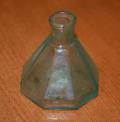




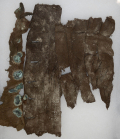
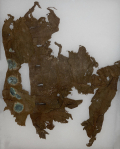
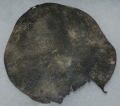
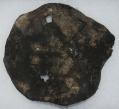






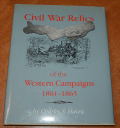








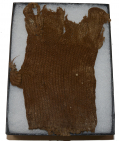
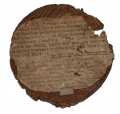
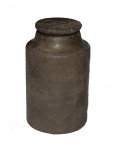


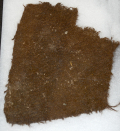

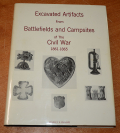


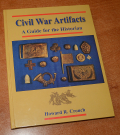




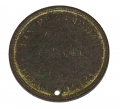
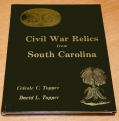



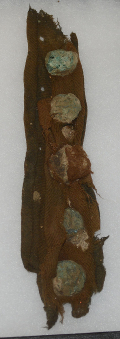
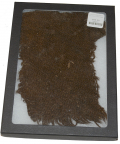
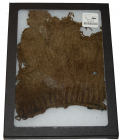
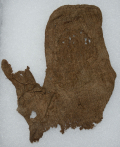

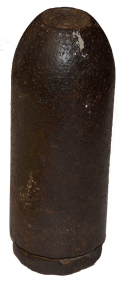

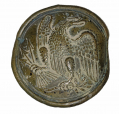


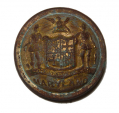
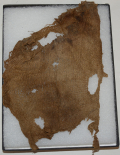




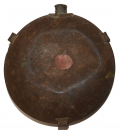
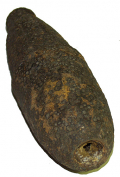
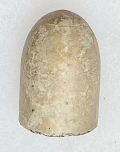

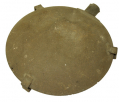





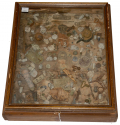
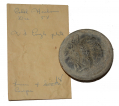
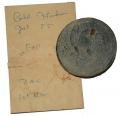


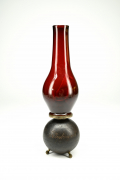




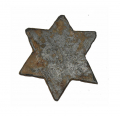
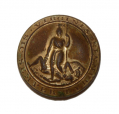




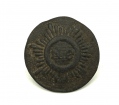
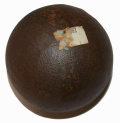

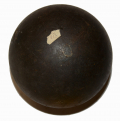

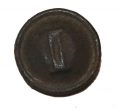
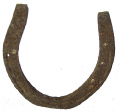






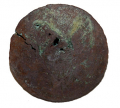
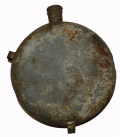
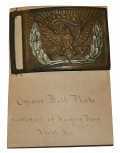
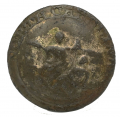


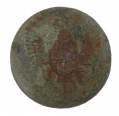
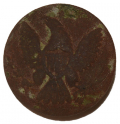



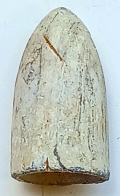
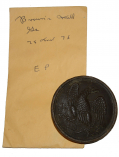
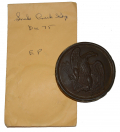
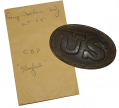
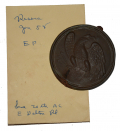
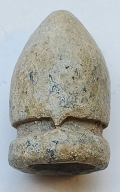

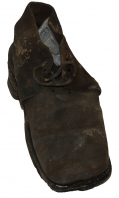
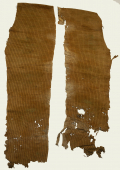
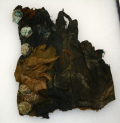

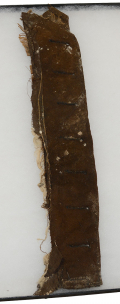
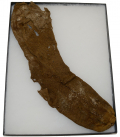
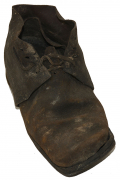
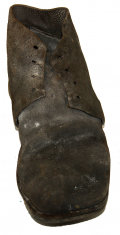
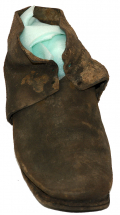
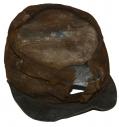
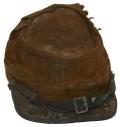
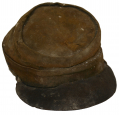
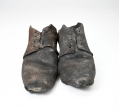

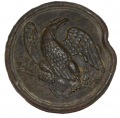




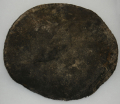

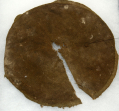

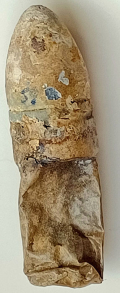


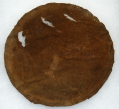
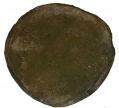











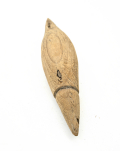




























































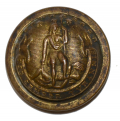

































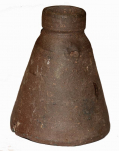











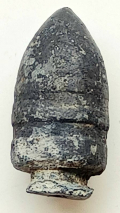















![.577 CALIBER ENFIELD BULLET WITH [6-SPOKE/RIMLESS WHEEL]](/images/product/43/186013_tn.jpg)






























































































